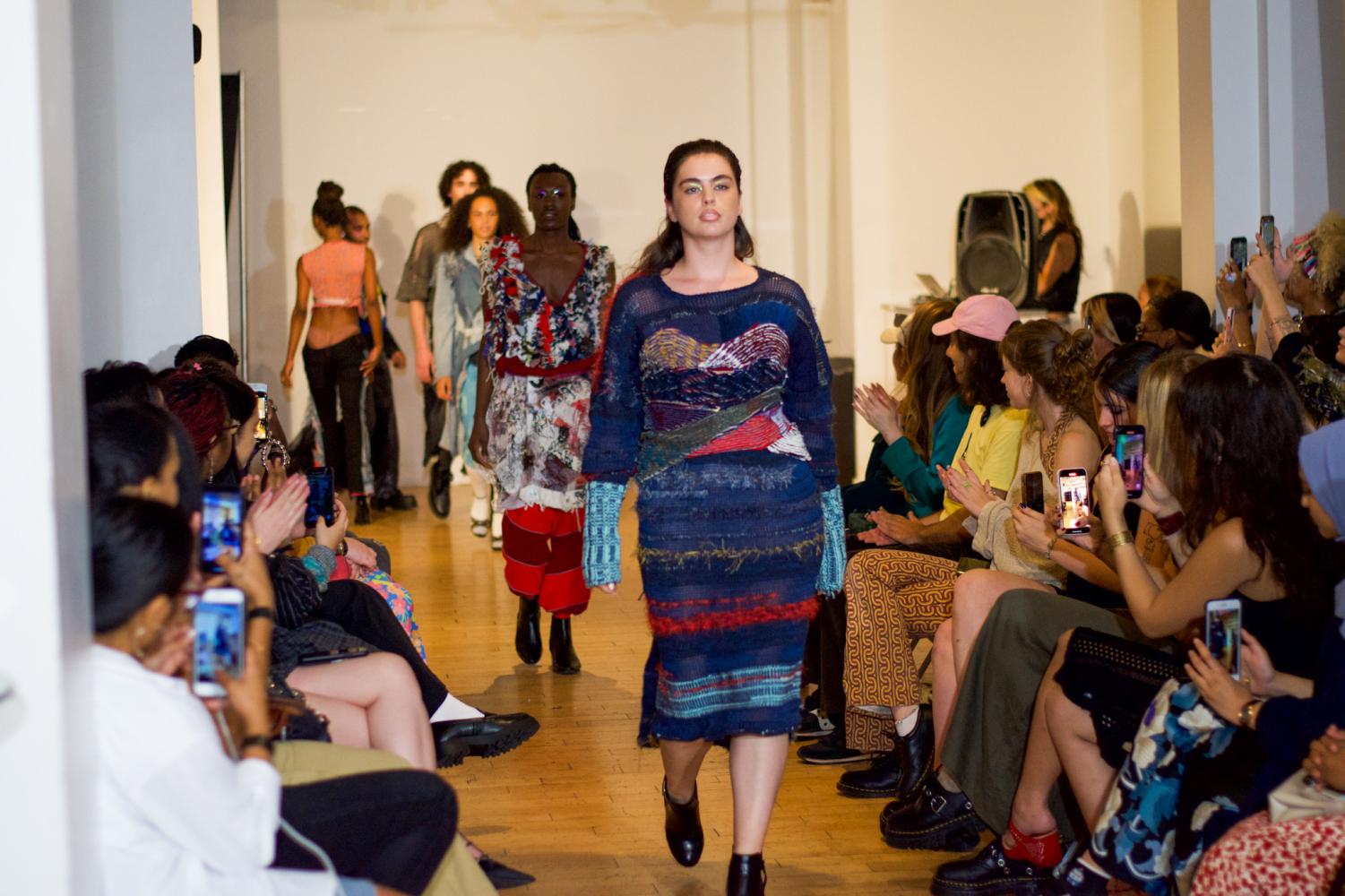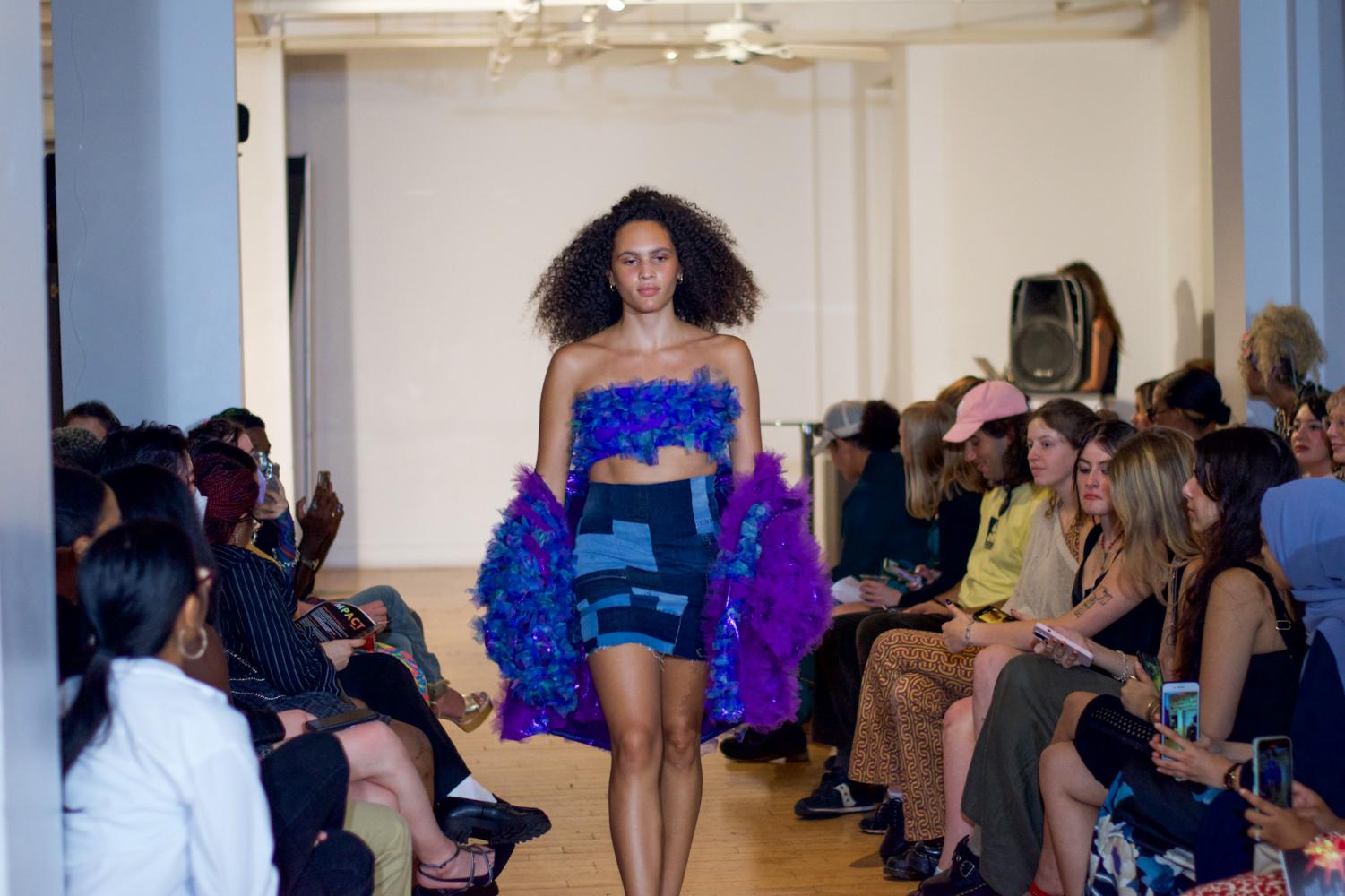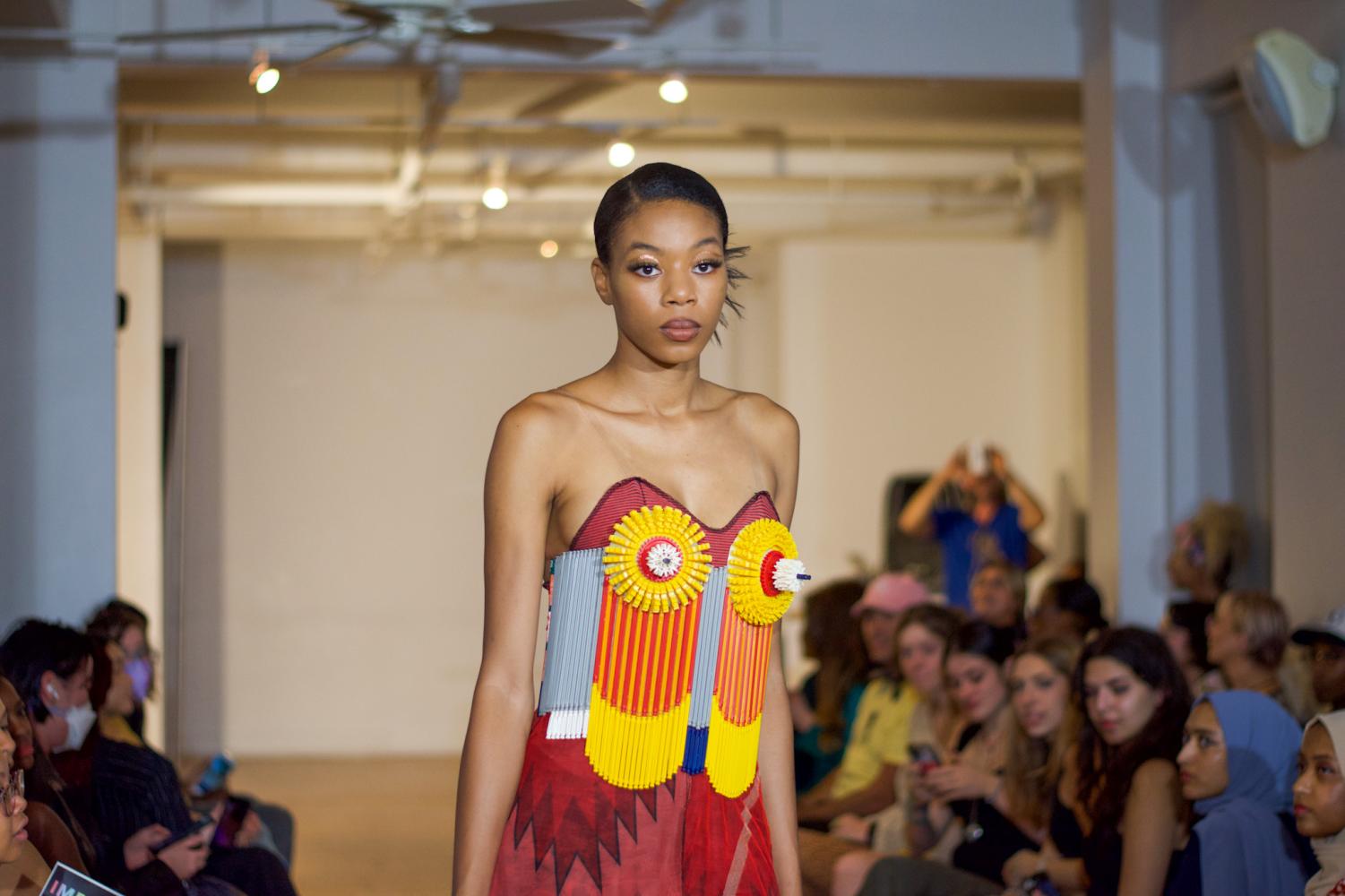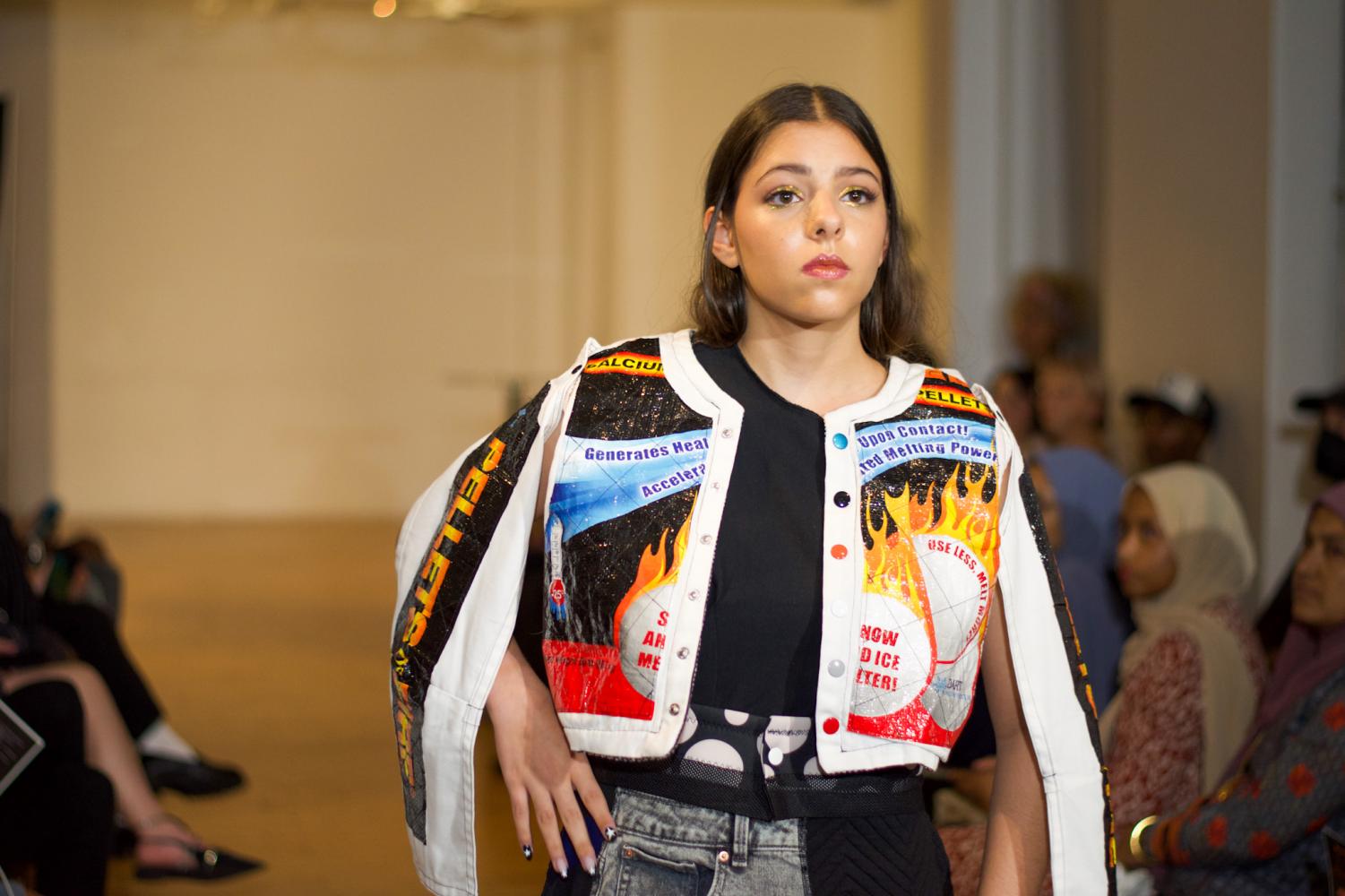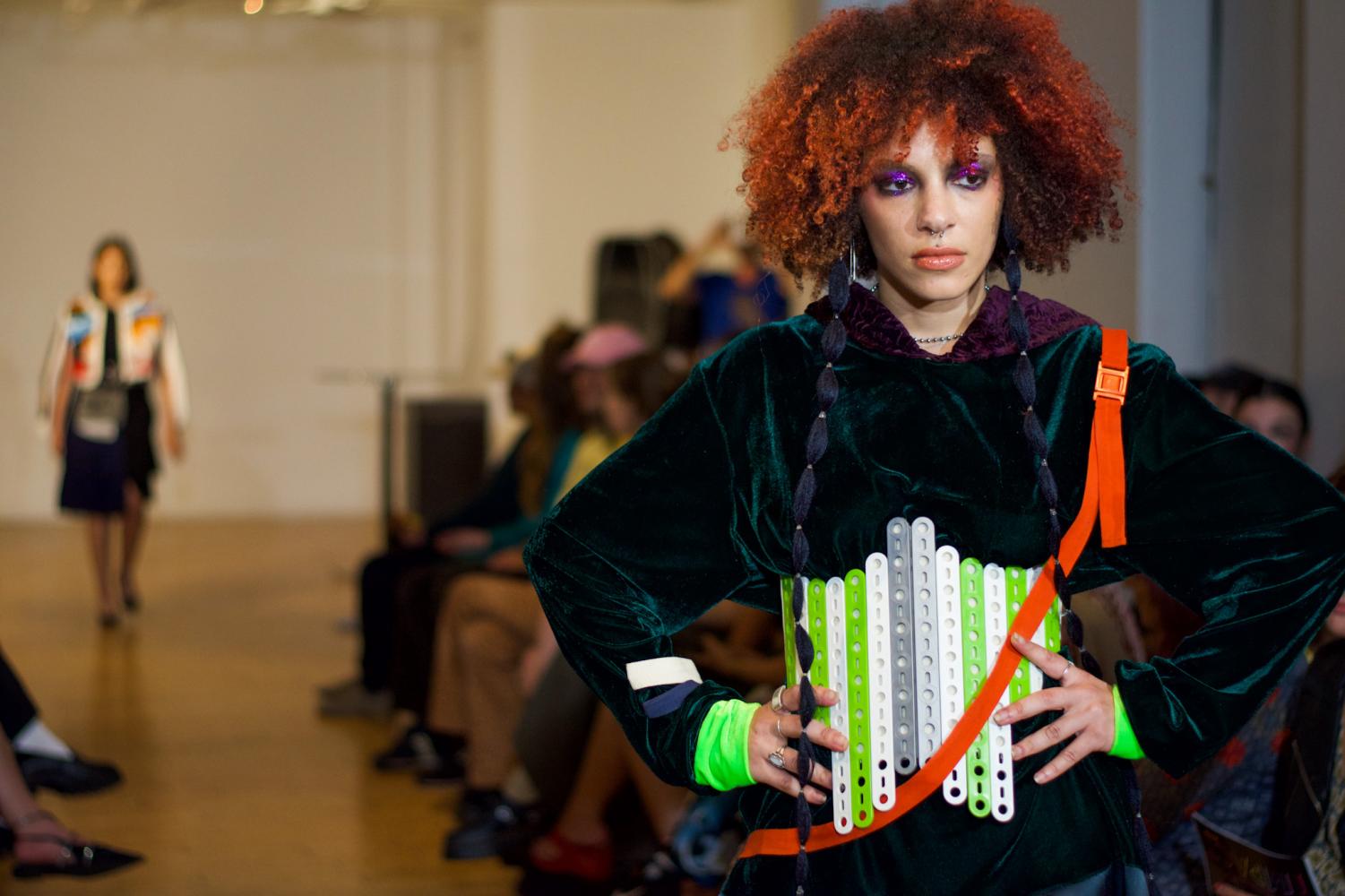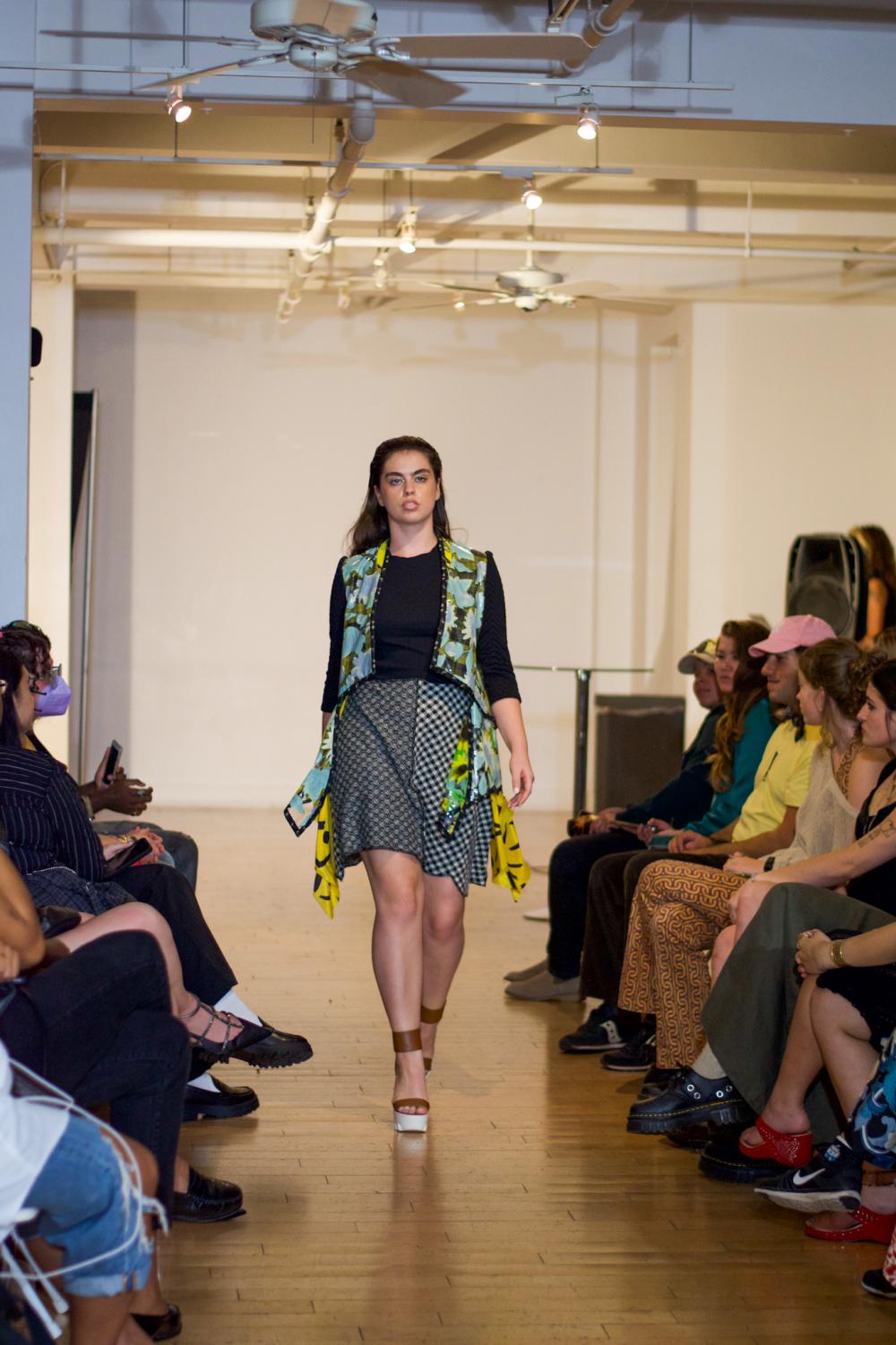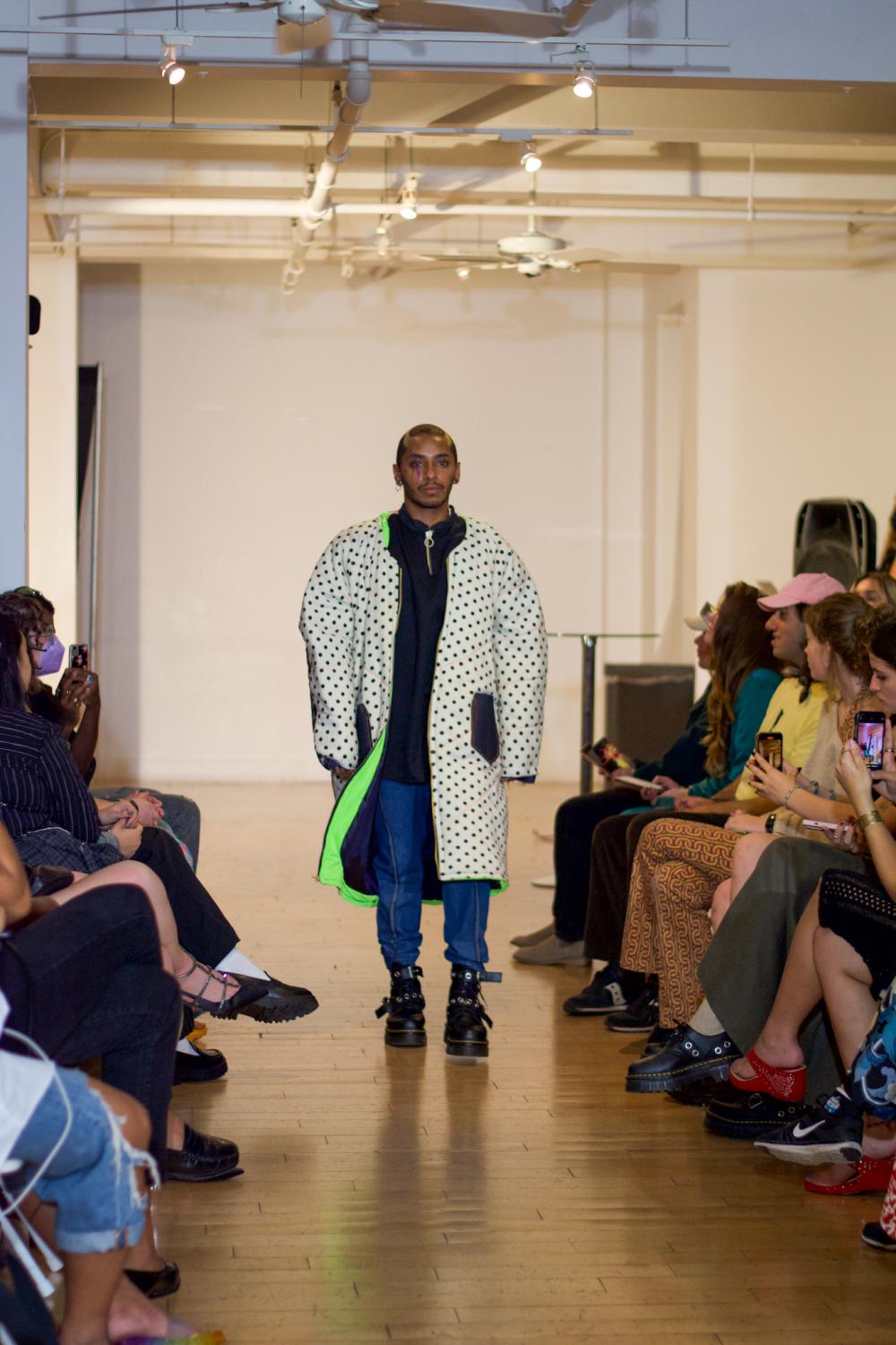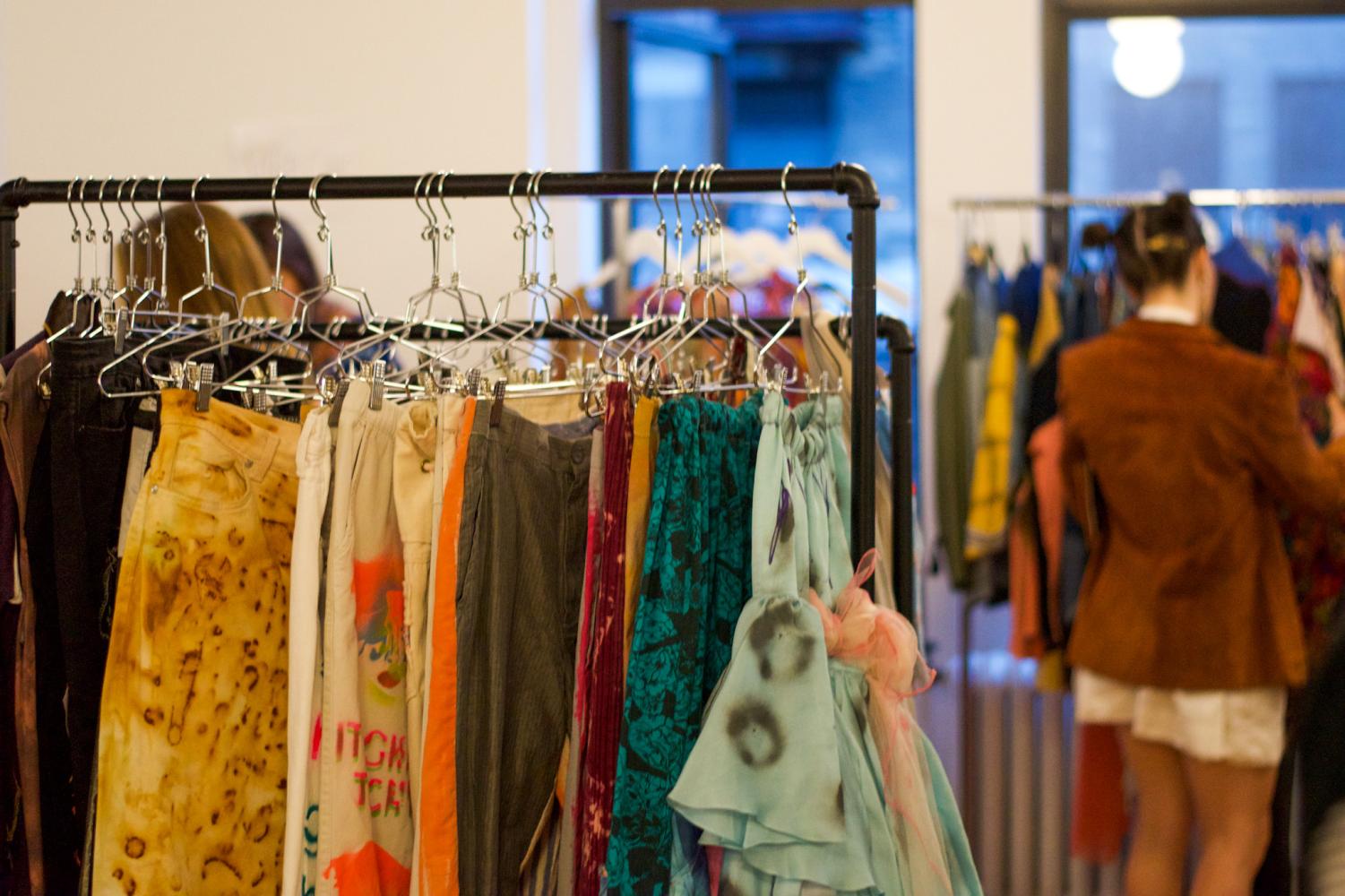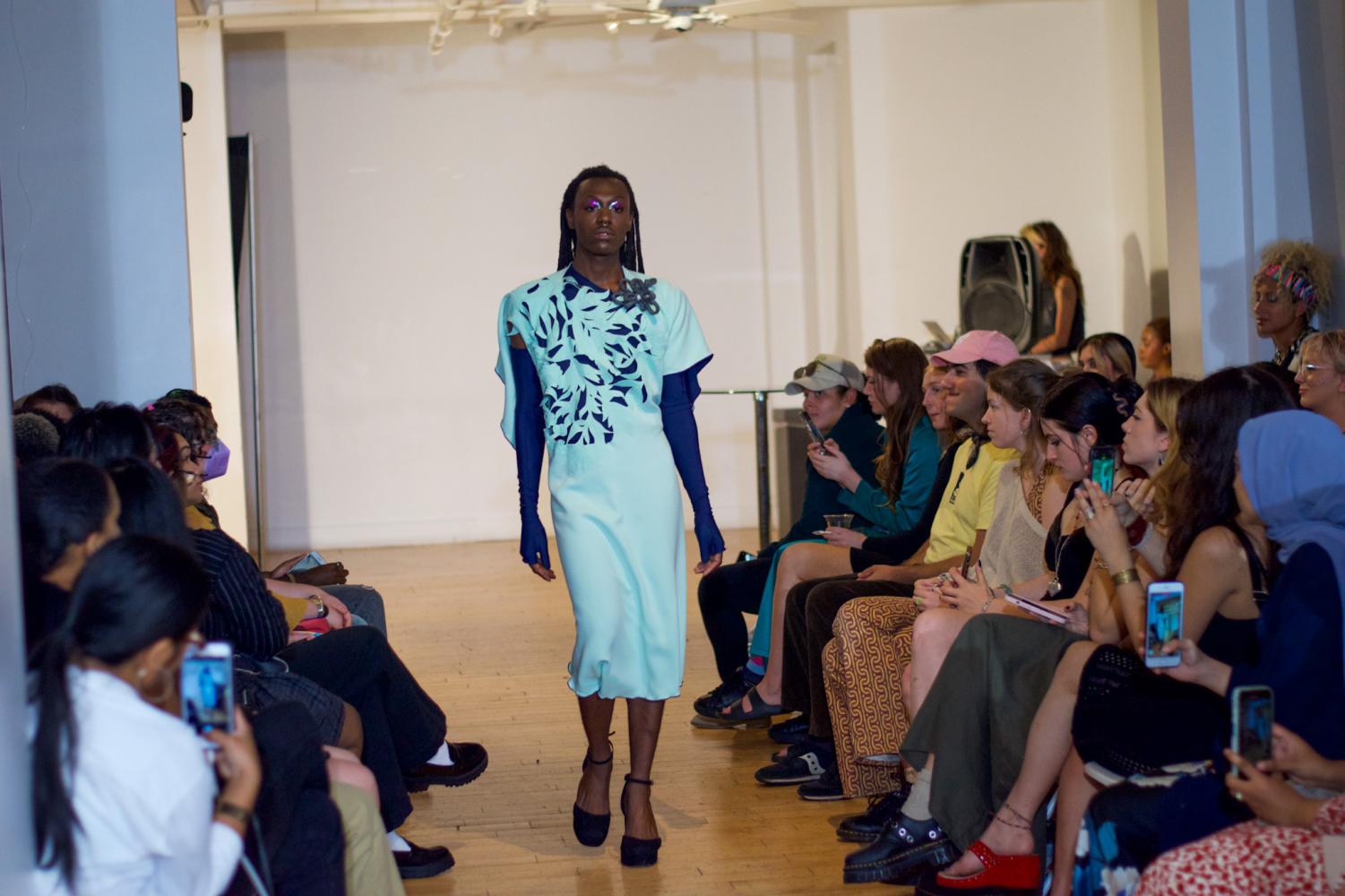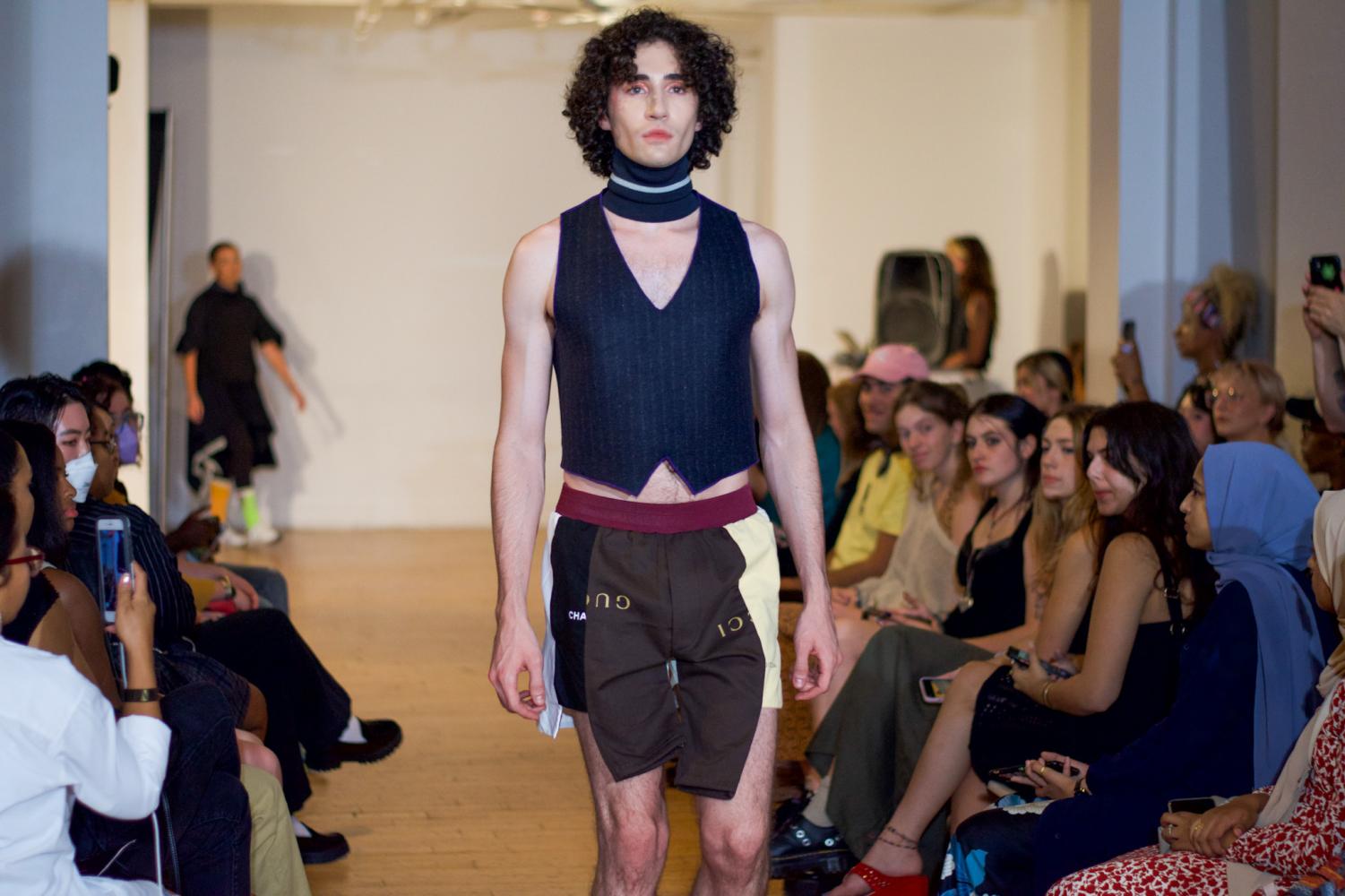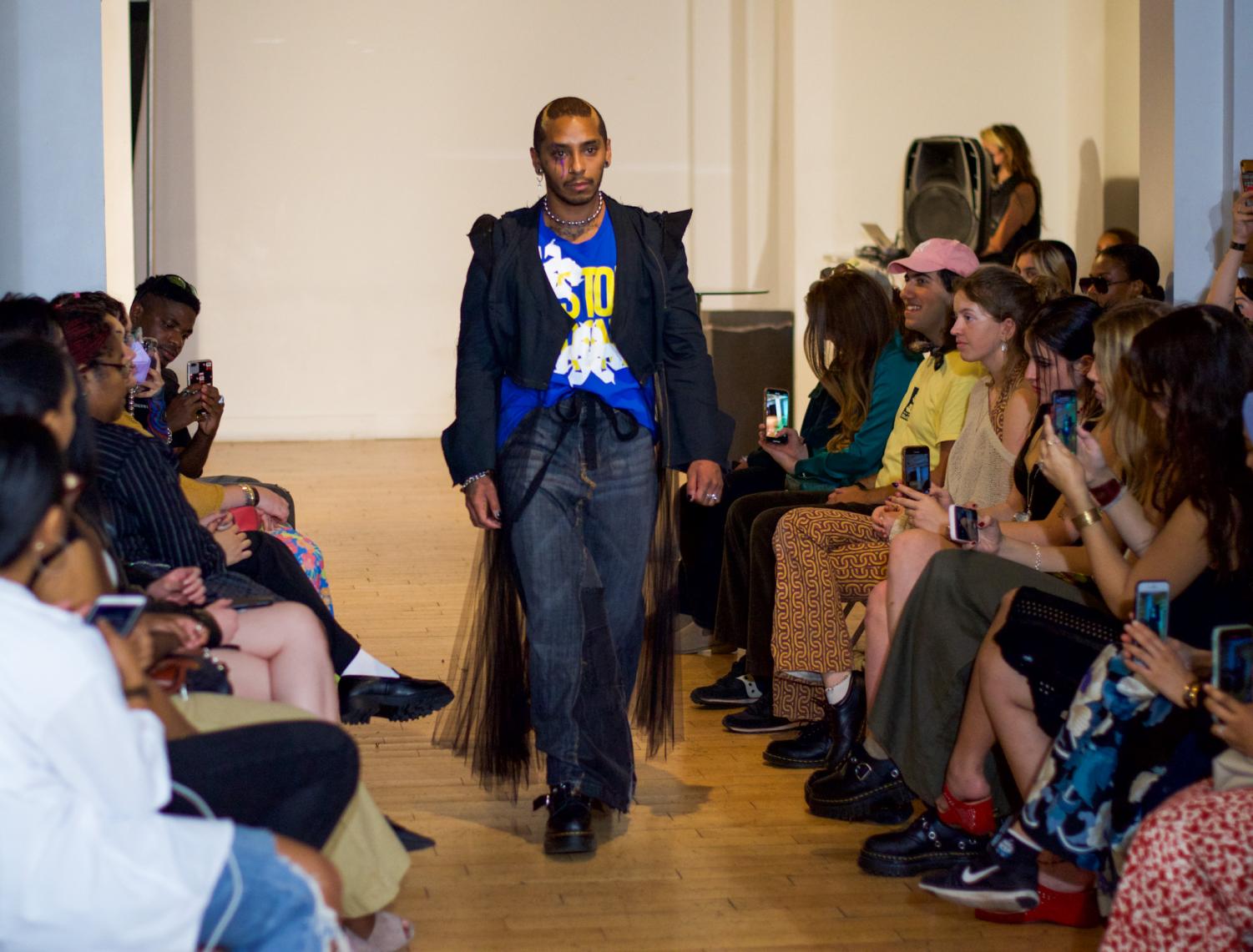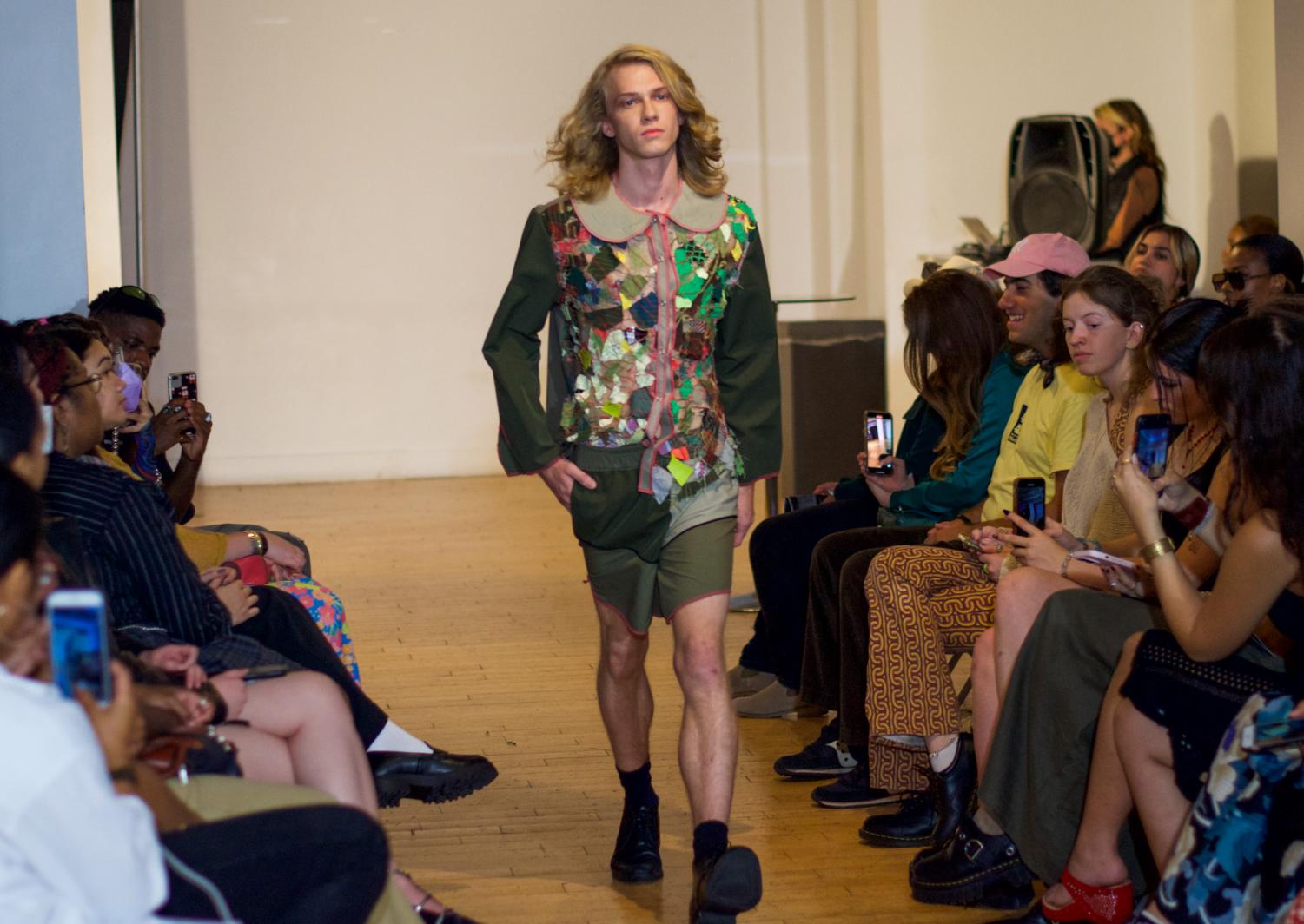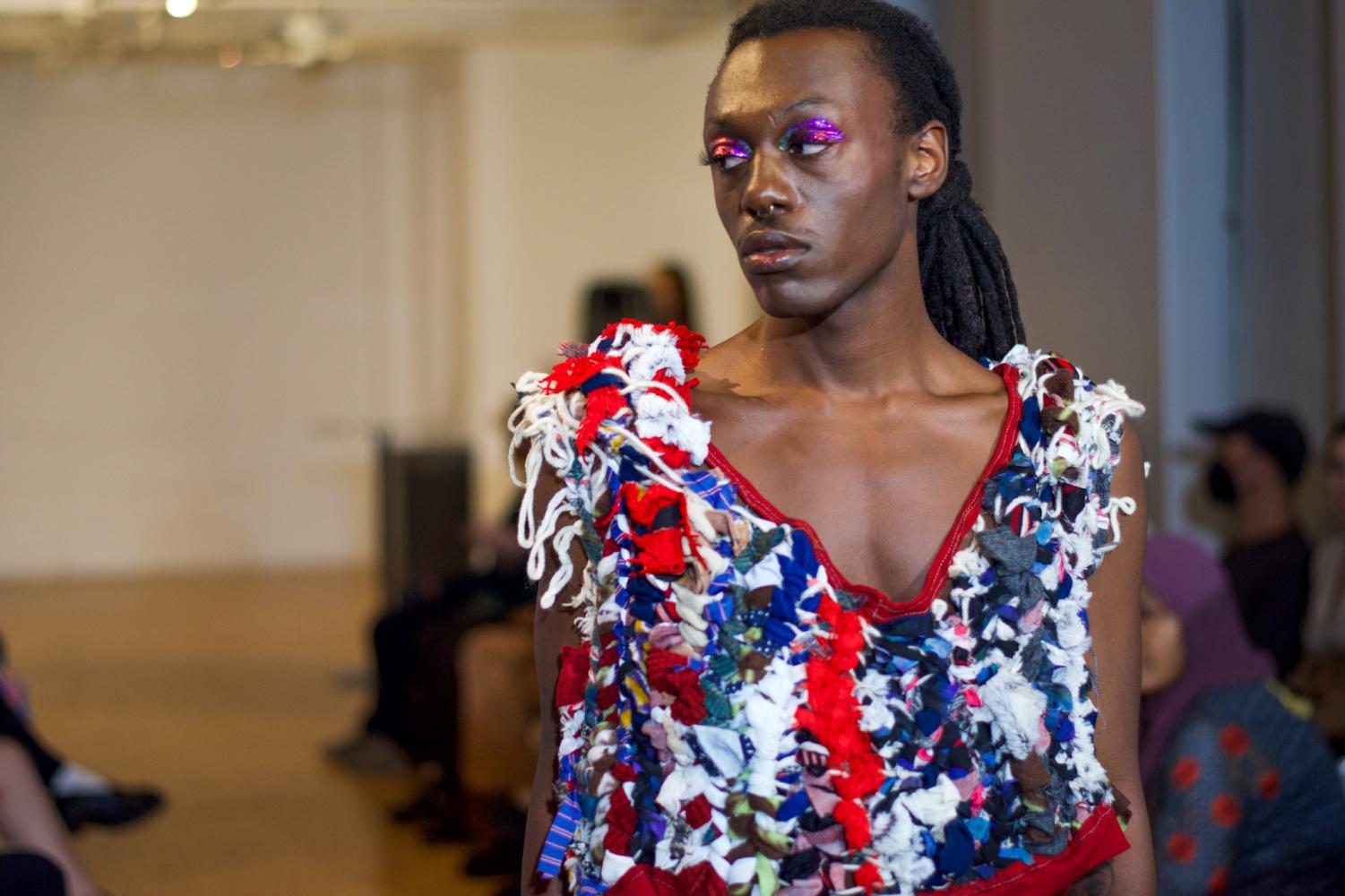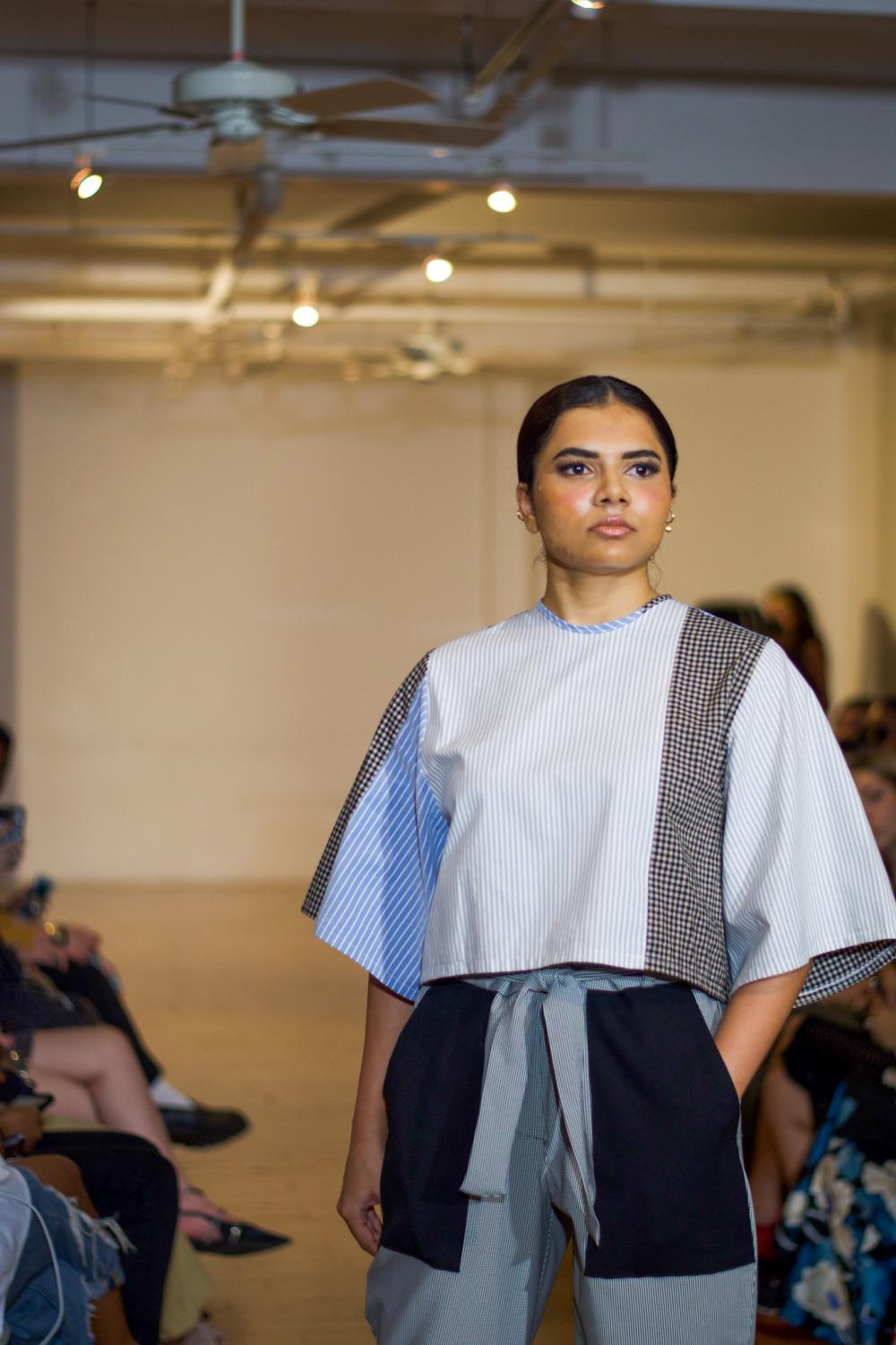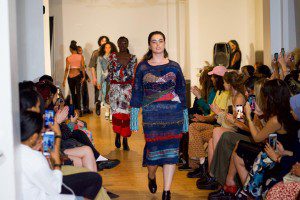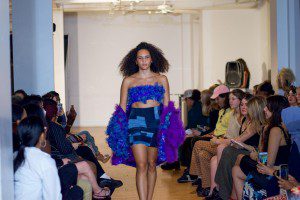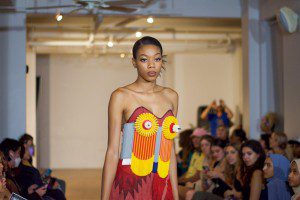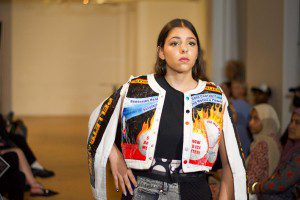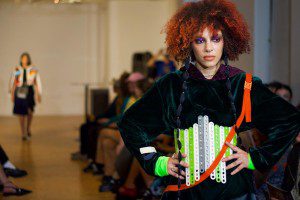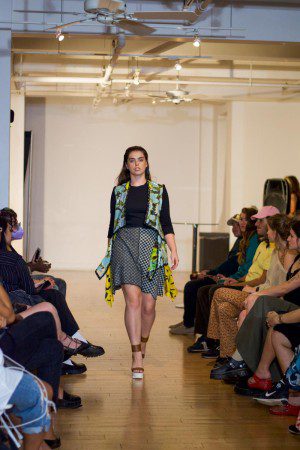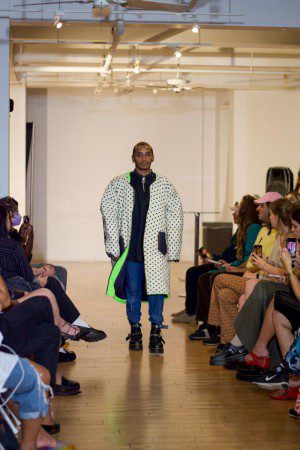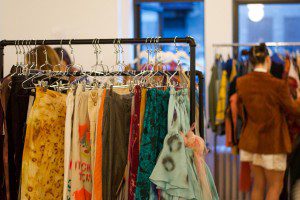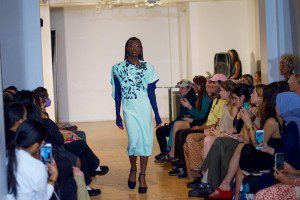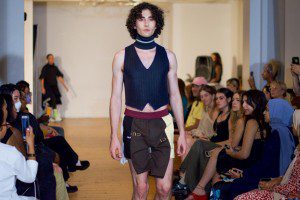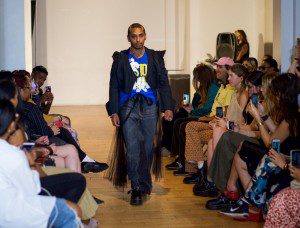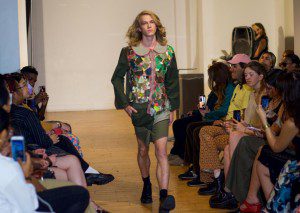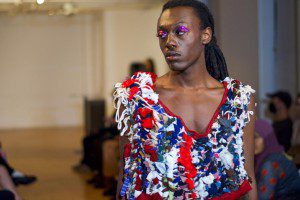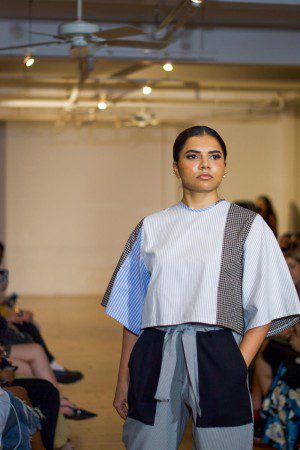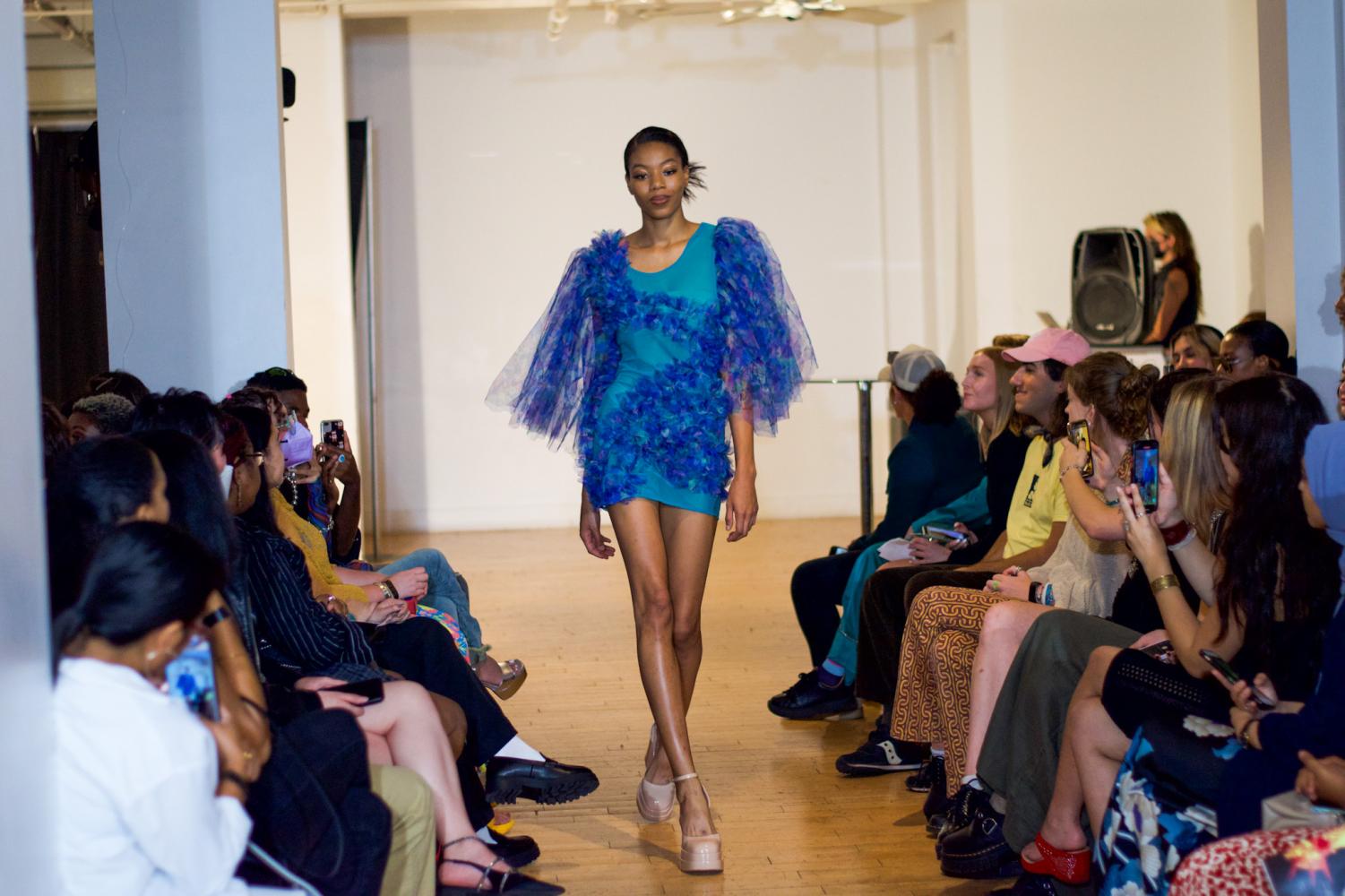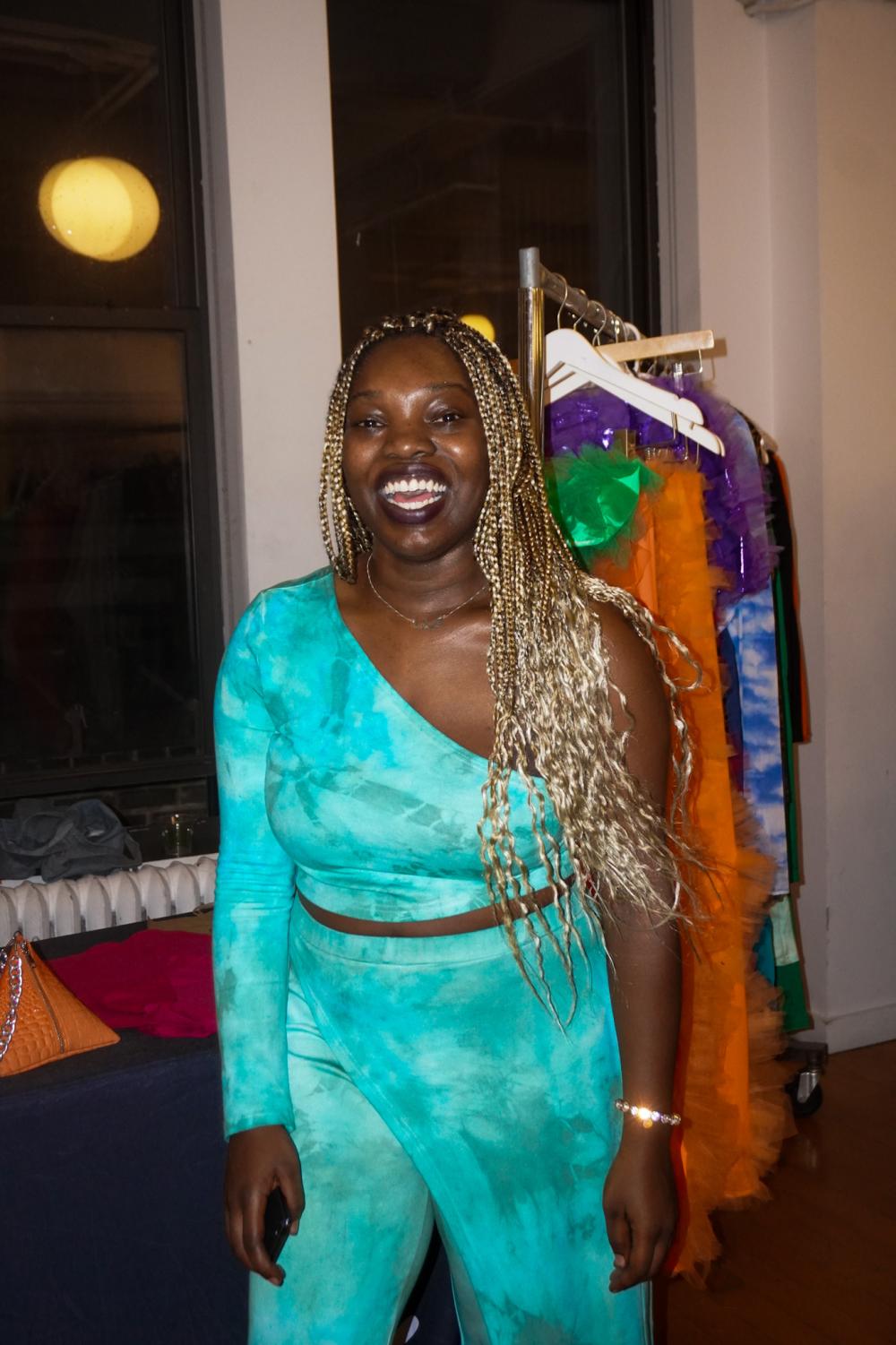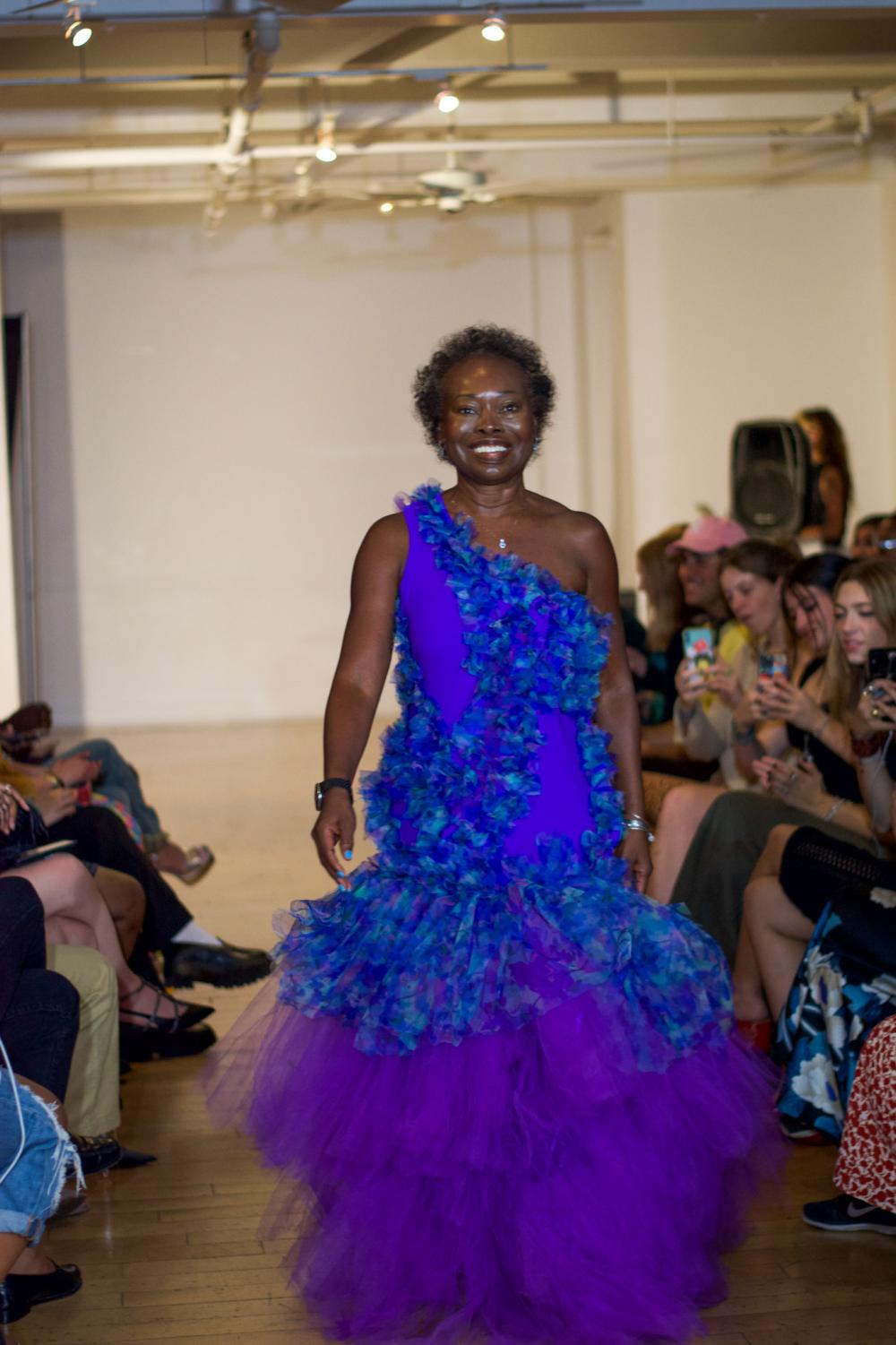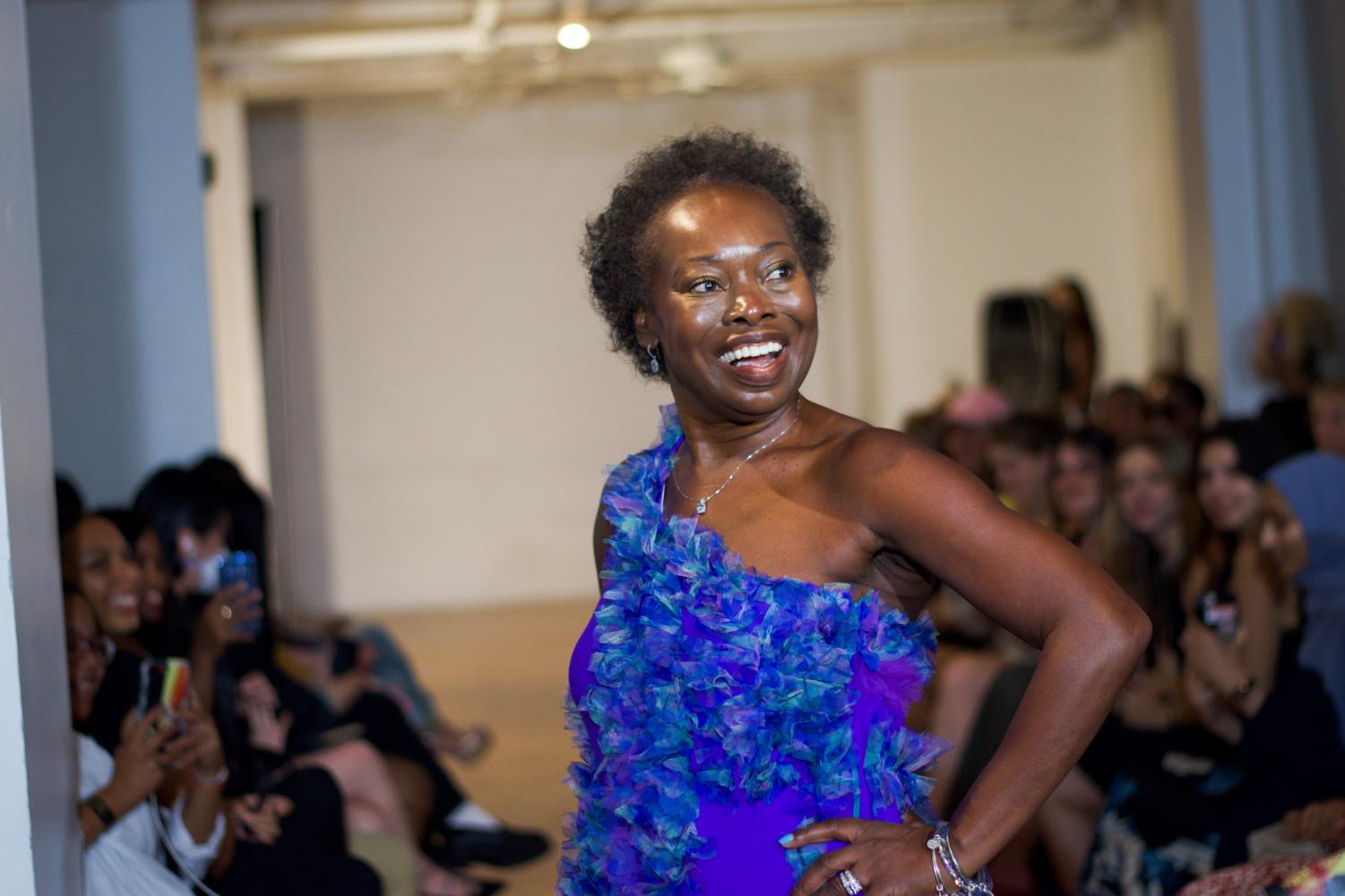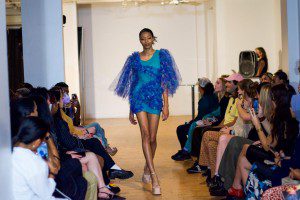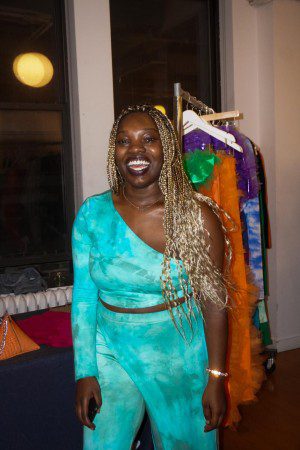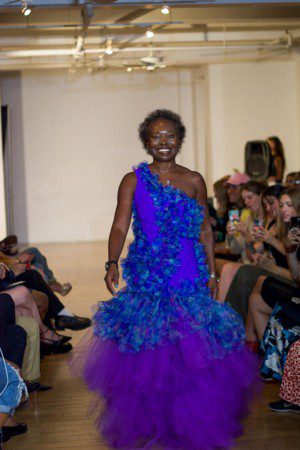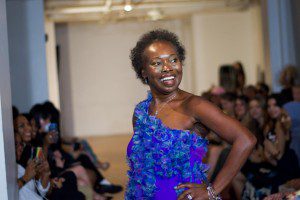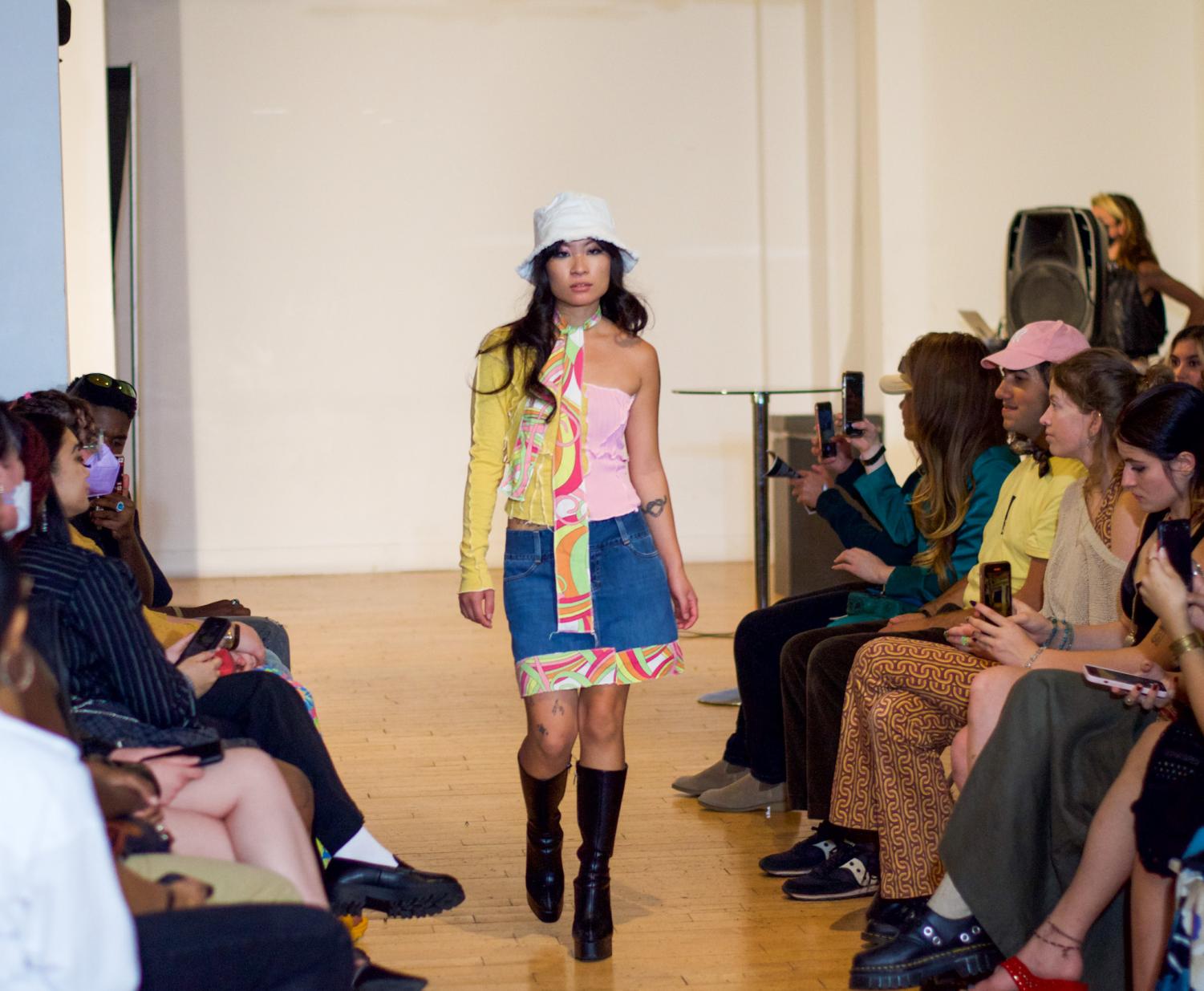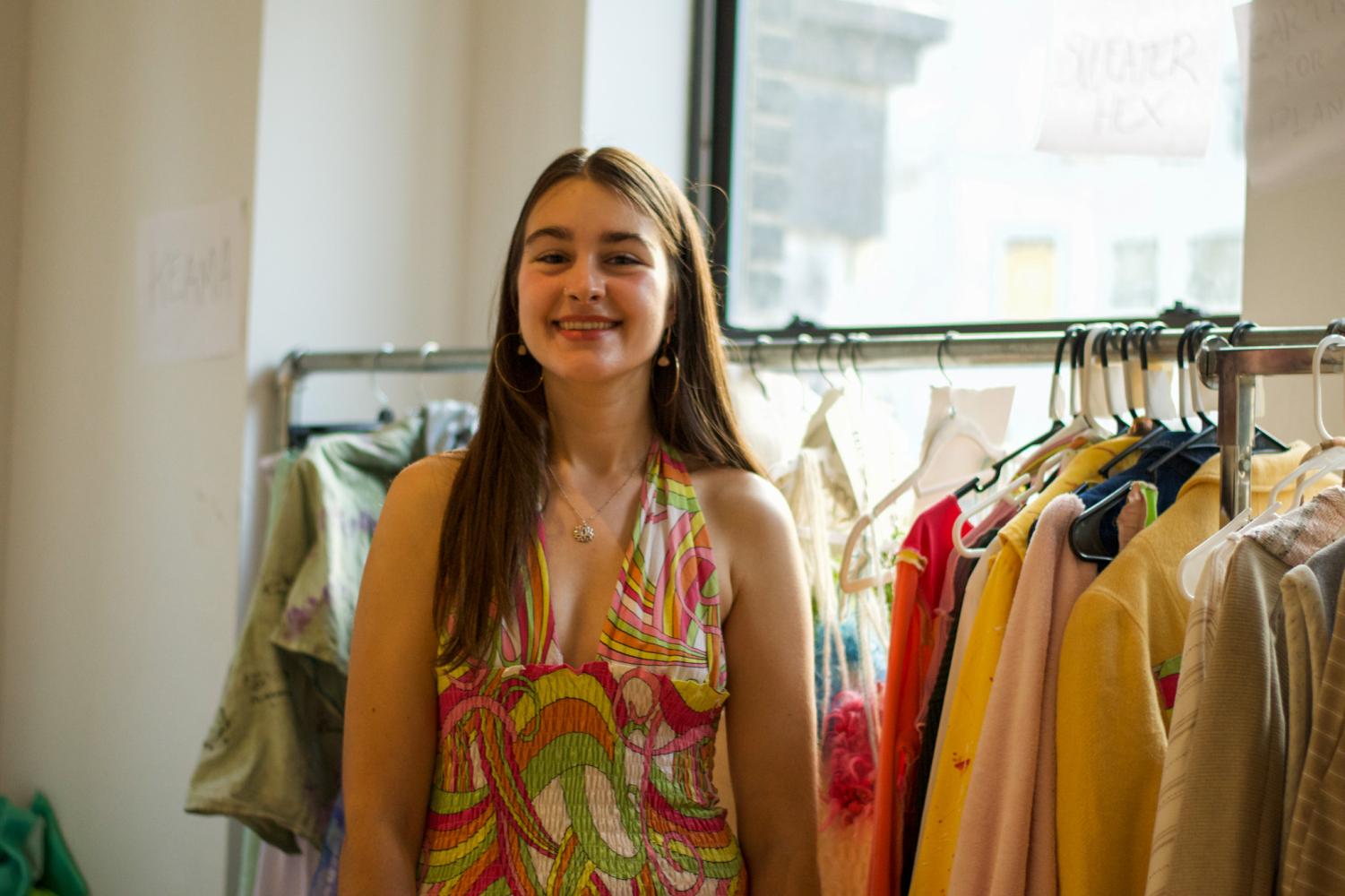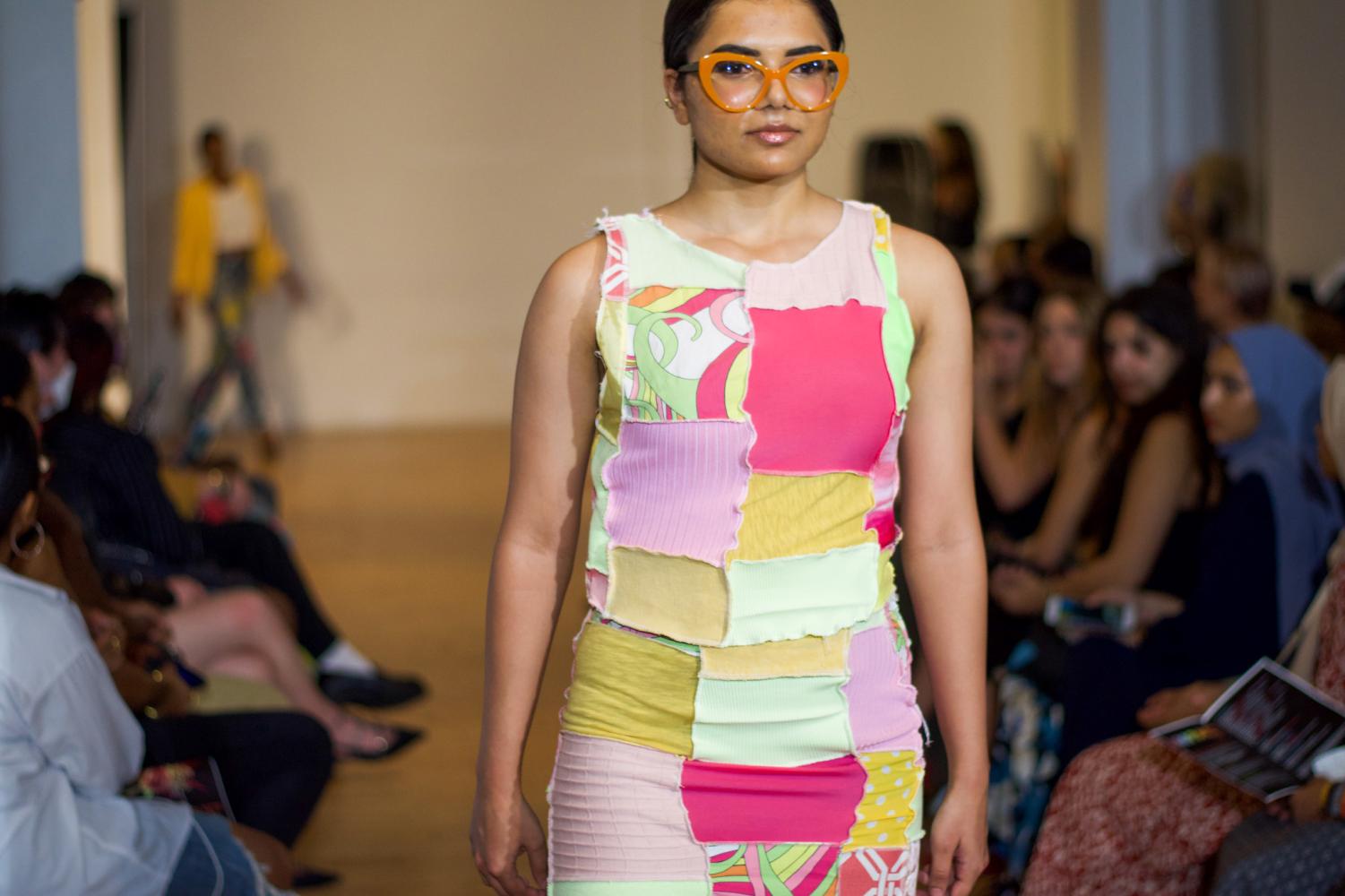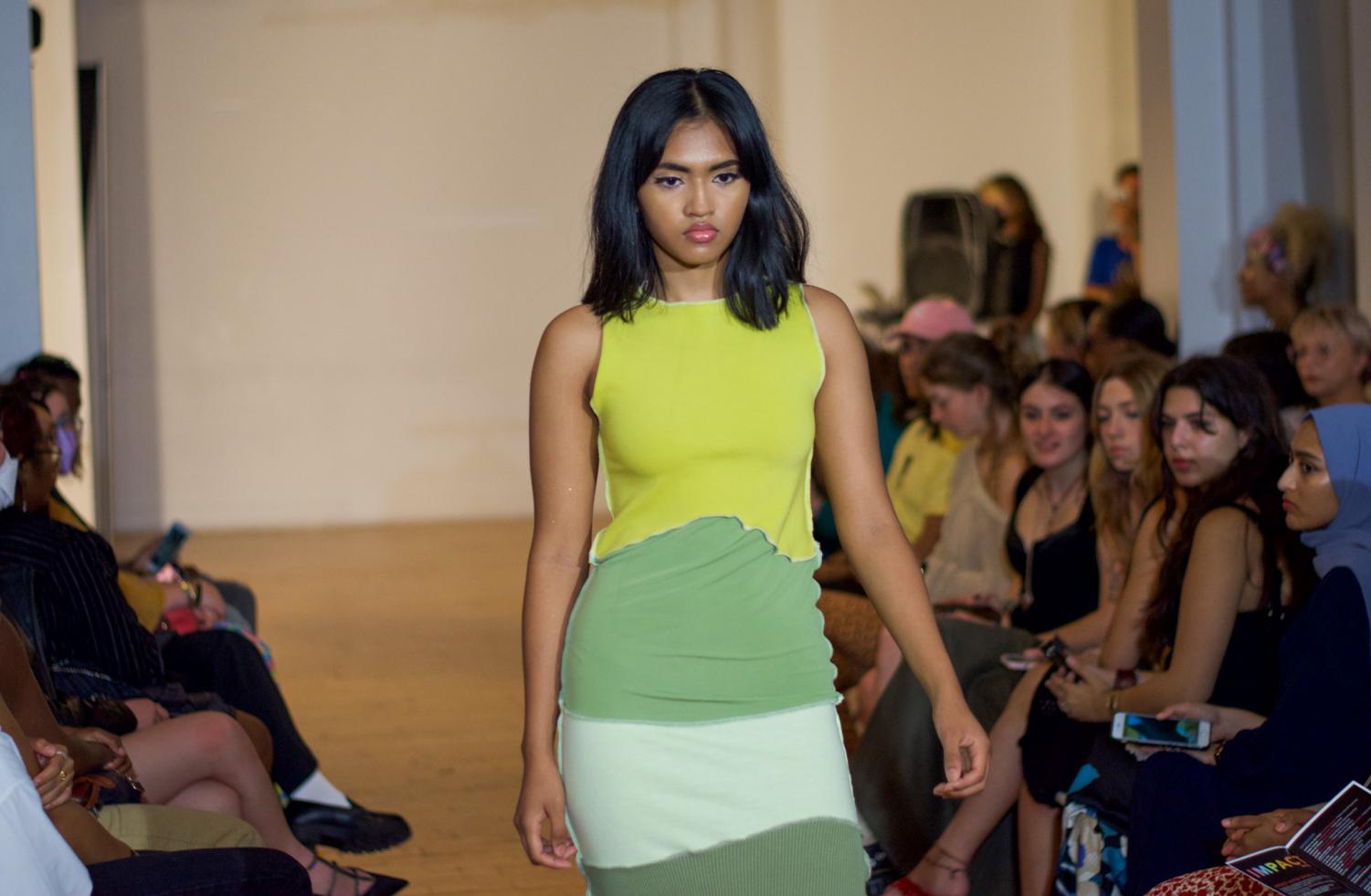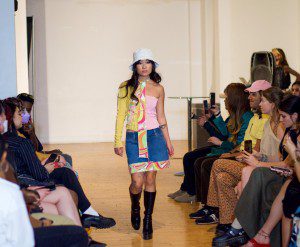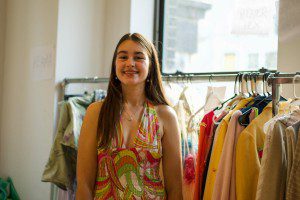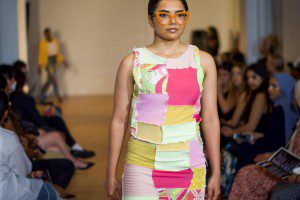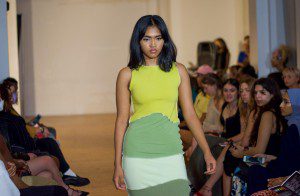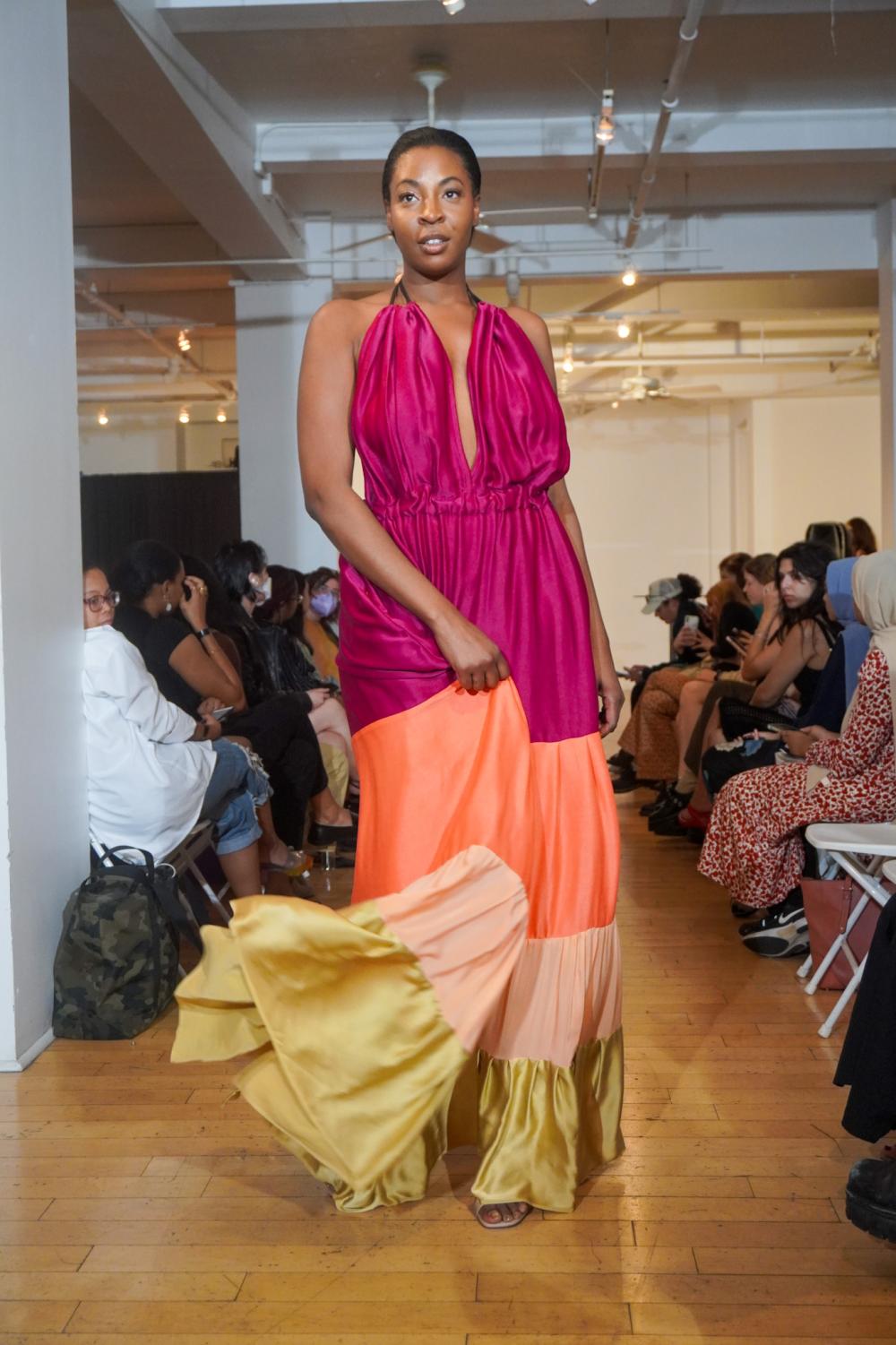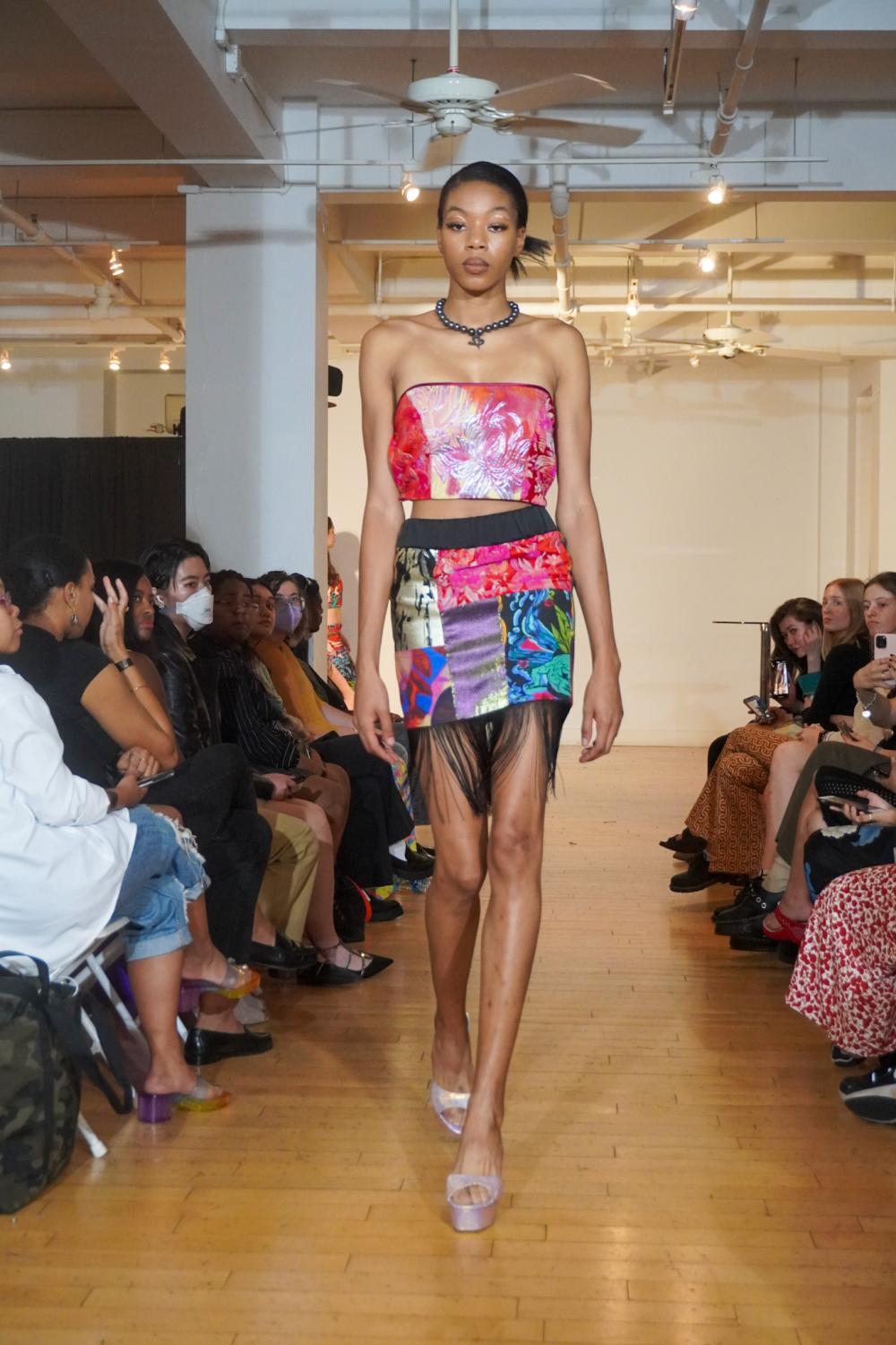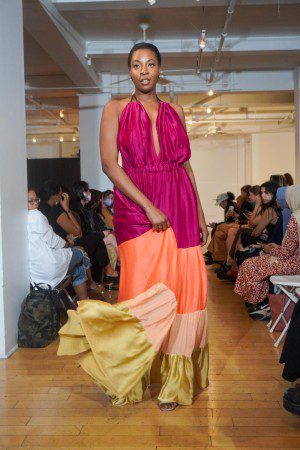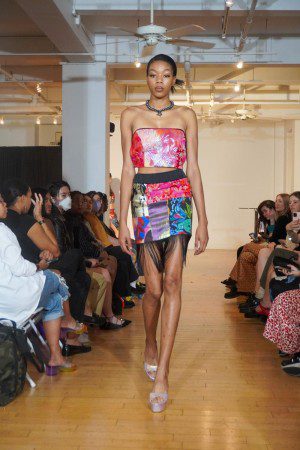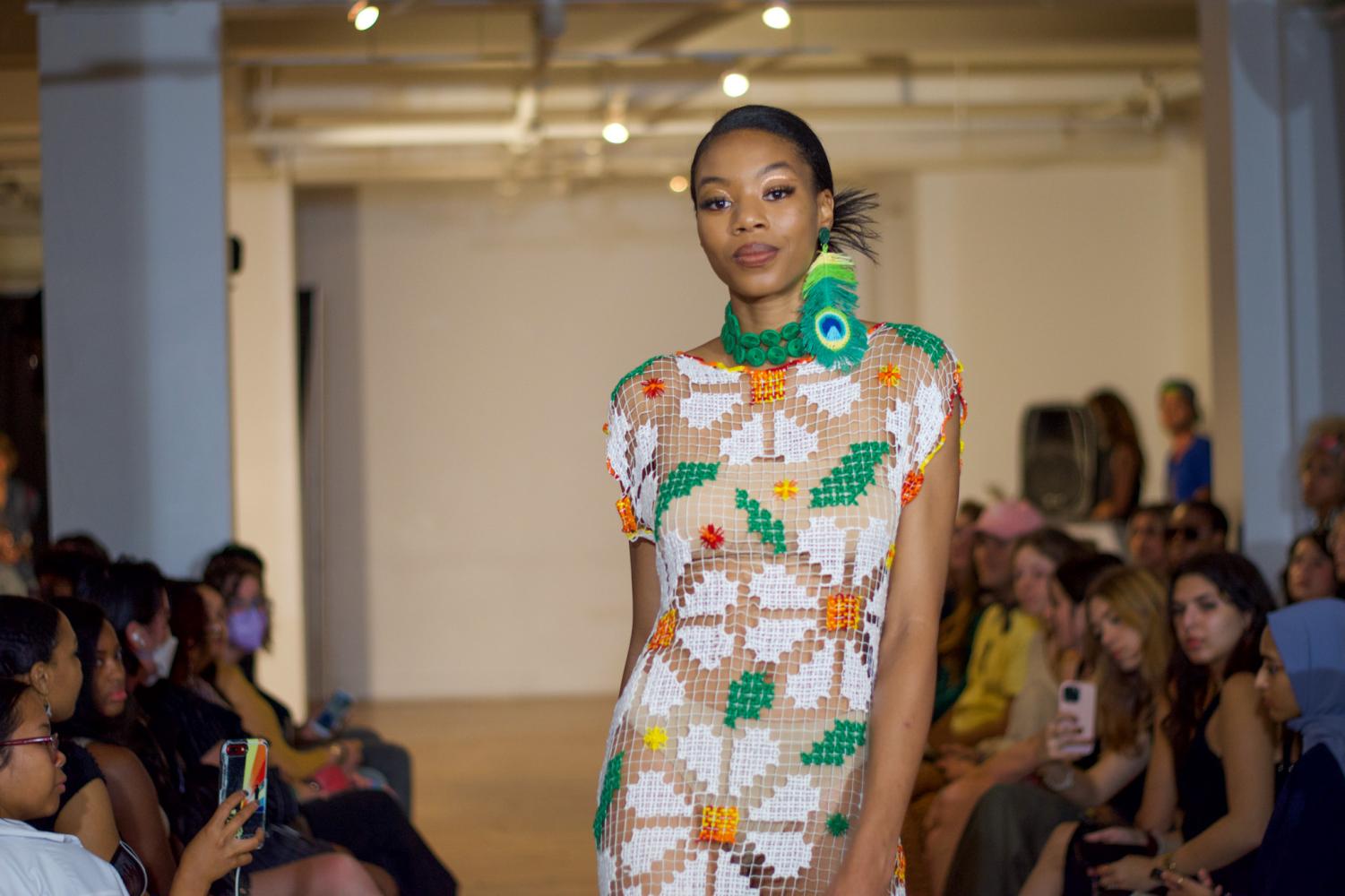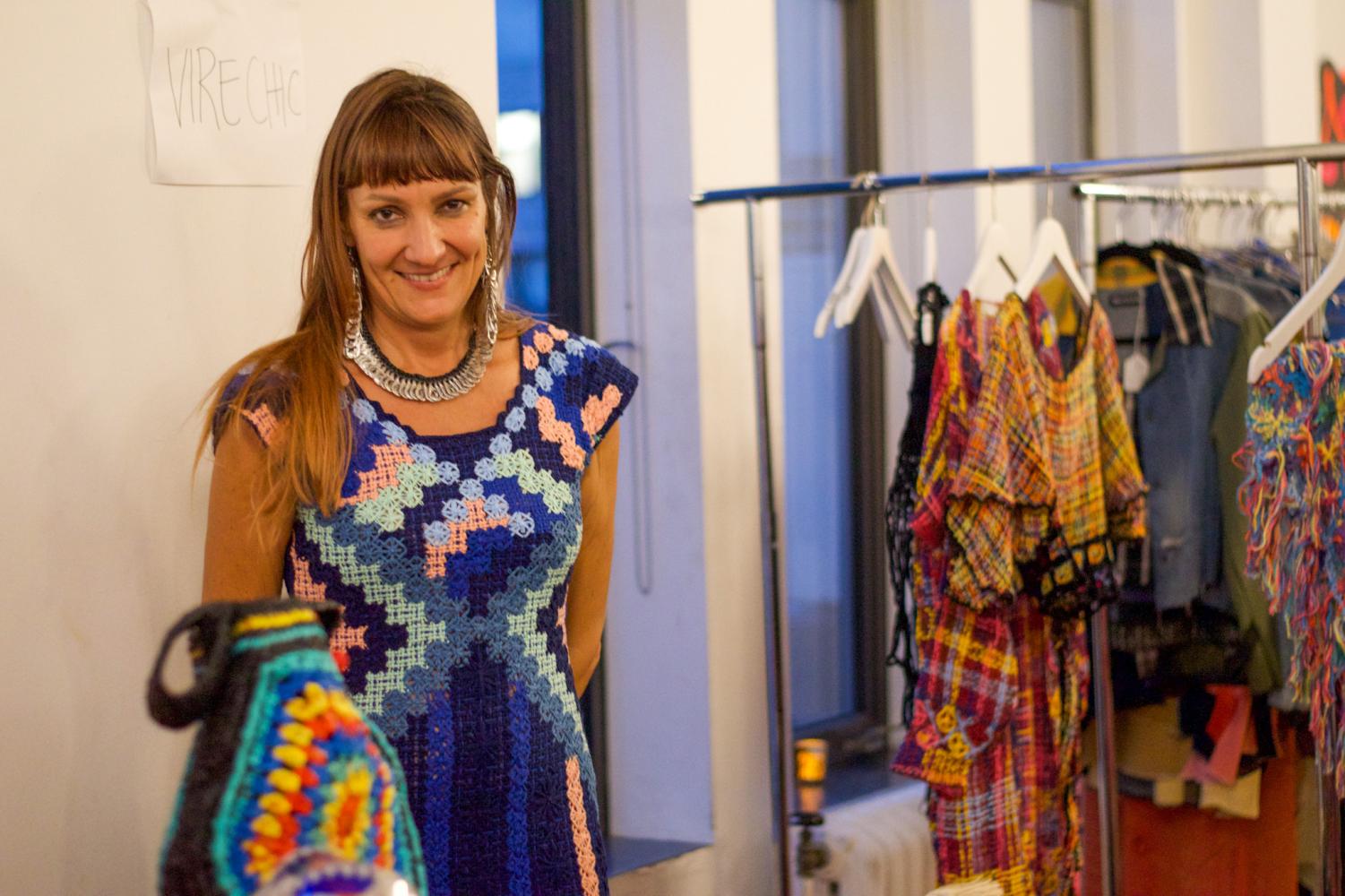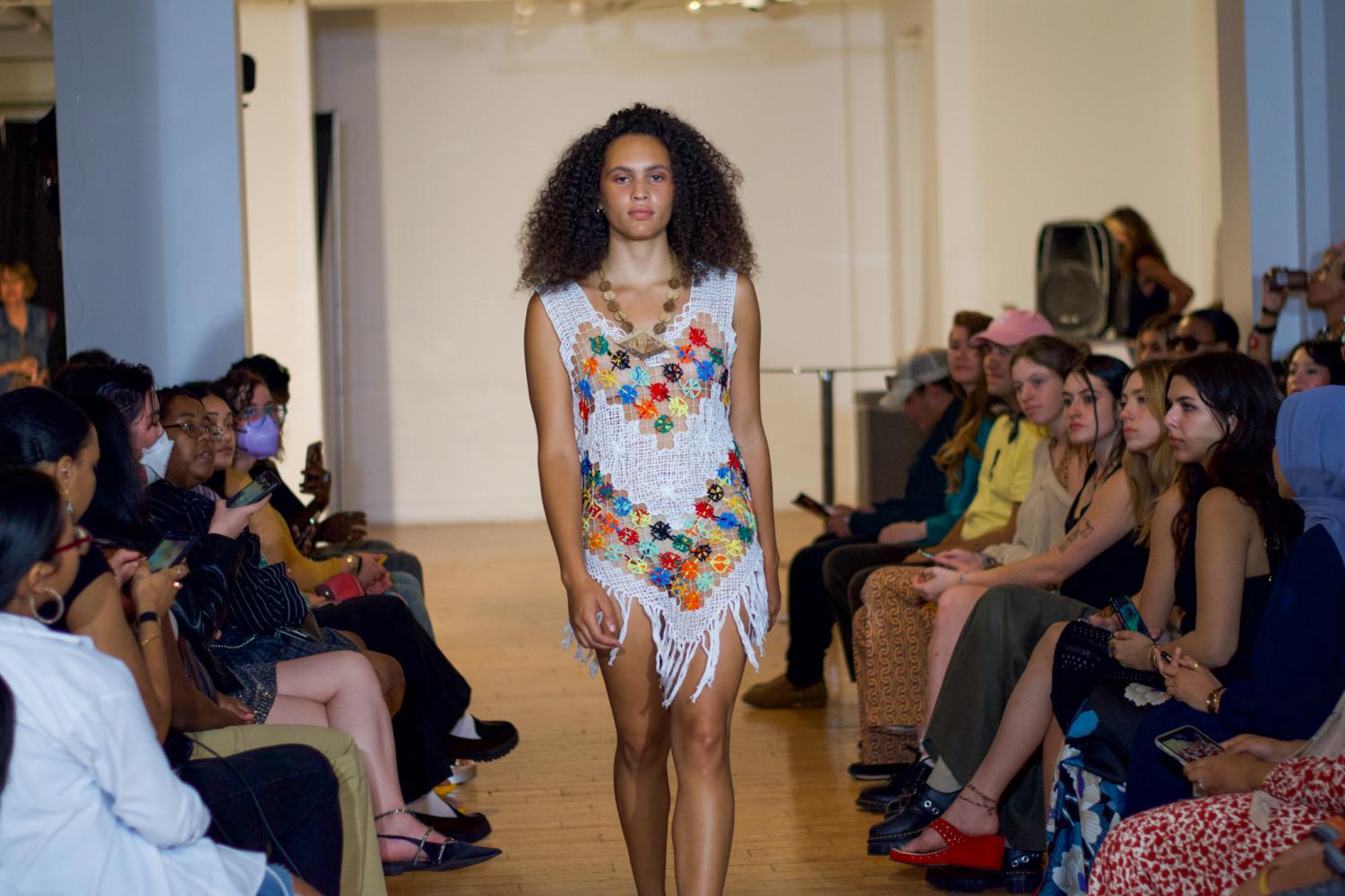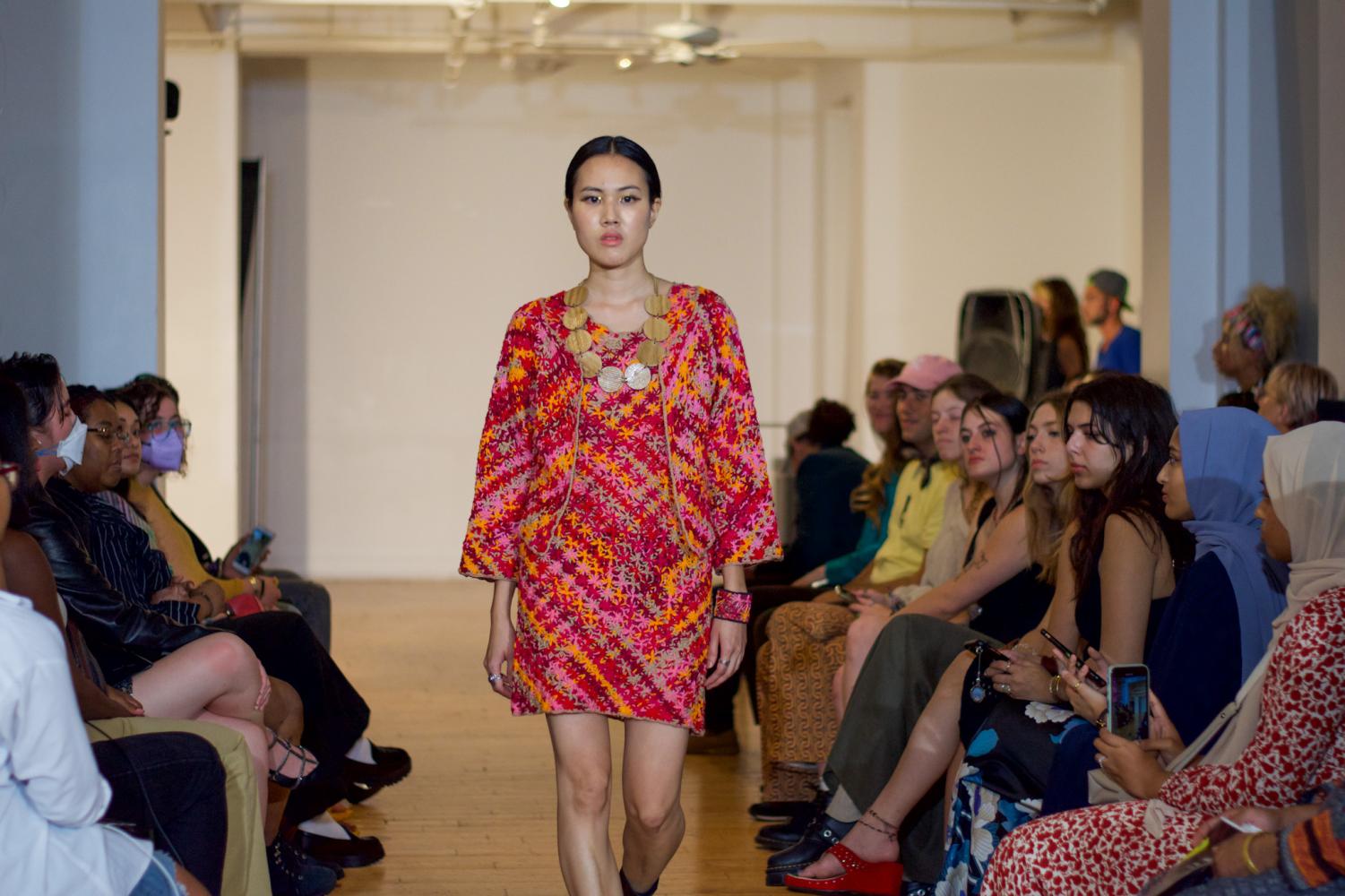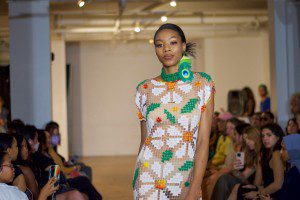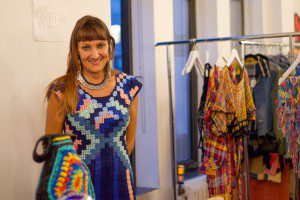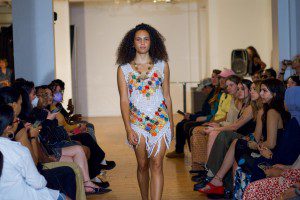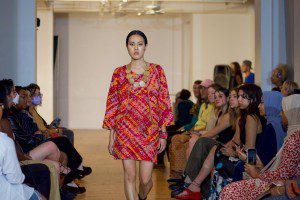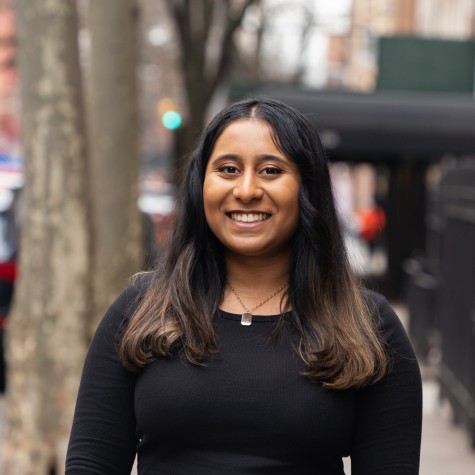Making a sustainable IMPACT beyond the runway
Celebrating green fashion, 15 eco-conscious designers disrupt NYFW’s detached environment with a strong IMPACT.
September 19, 2022
Walking into any big-box retail store, you probably have no idea about the who, what and where behind your favorite pieces — IMPACT NYFW strives to change that. IMPACT, a non-profit New York Fashion Week organization, presented its fourth show at Midtown’s Studio Arte on Saturday, Sept. 17. Its flea market vibes with pop-up shops, hors d’oeuvres and sips made this runway experience more interactive. All ticket proceeds went to Fabscrap, the event’s beneficiary that works with over 600 different brands in New York City to recycle their commercial waste.
Faith-based apparel brand LOM & MOY, meaning “less of me and more of you,” opened with its line created from secondhand and recycled textiles from Fabscrap. Selected for IMPACT’s runway grant, the brand offsets production costs. A soft, red, blanket-like material brought together the largely patchwork collection of neutrals — mellow blues, grays and blacks — in the form of a robe, jacket and pants. Other brands featured included Junkyrd, Lagoon New York, Paradox Vested Relics, Thistle Pot, Laili Lau and Gabby Vazquez.
Harlem-based designer Keäma AliceRuth Garrett of the fashion house KEÄMA, who designed Beyoncé’s visual album “Black is King,” returned this season with modern couture inspired by her upbringing in Ohio and her first experience visiting South Africa. Garrett’s mother modeled a beautiful, tulle, tiered gown in water-colored blue and purple, joyfully twirling down the runway in her daughter’s designs.
“I wanted to represent my mother because a lot of Black women aren’t really shown on the runway as much,” Garrett said. “I just really want to honor her and let her have the moment because she’s done so much for me.”
Garrett’s regal designs worked in iridescent silks and leather. Celebrity guest host Hannah Chaddha, a participant on season 23 of “Big Brother” on CBS, spoke about how Garrett’s clothes reminded her of the Sotho people of South Africa. Chaddha’s mother is from South Africa, and her father is from India.
“The patterns that [KEÄMA] utilized, the vibrant colors … both of those cultures are notorious for just being colorful and celebratory,” Chaddha said. “Based on the connotation that recycled or secondhand clothing has, you wouldn’t think that you’d be able to put on this whole show. But this was amazing.”
Following KEÄMA was EARTHLY for the Planet, whose collection featured all-inclusive, edgy and vibrant clothing reinvented from customers’ donations and Fabscrap pieces. Pop music complemented the bright pinks, oranges, yellows and springtime greens which took center stage. Asymmetrical, patchwork dresses innovatively wove the color palettes together. One blazer with “f*ck fast fashion” patchworked on the back had the audience cheering.
“A lot of brands in fast fashion first need to stop producing as much as they do,” said Jordan Pietrafitta, the founder and designer of EARTHLY. “If brands were fully genuine about taking things back and reusing them, that would make a huge difference. A lot of brands could be more sustainable if they started collecting donations and actually doing something with the donations.”
The vision for EARTHLY began with an environmental science general education course that led to Pietrafitta’s honors thesis at The Pennsylvania State University, where she started upcycling with fabric sitting in her family members’ closests for years. Ten percent of EARTHLY’s proceeds are donated toward social justice and environmental organizations.
Musicians performed between the designers’ collections, providing a seamless transition as the models got ready backstage. Amaya Santos debuted her new song, “Dance with Danger,” a mix of Latin pop and R&B. Santos, who went to school for fashion design, said she strives to incorporate recyclable clothes into her closet.
“[These designers are] artists just like me,” Santos said. “Seeing their pieces come down the runway and come to life is a very special thing to me.”
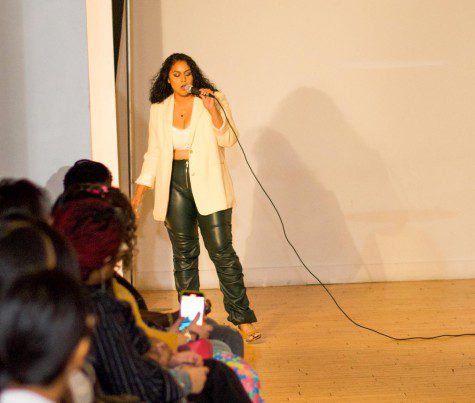
Lizzy Gee, executive producer and president of IMPACT, recently lost many of her designs in a fire that destroyed her Brooklyn studio. However, she incorporated the designs she salvaged from the disaster into her zero-waste, upcycled collection called “Reminisce.”
“I just redesigned from past collections because a lot of my pieces are reversible too, so I just showed the other side that I didn’t show before,” Gee said. “I make my pieces very transformable and adjustable.”
Gee transformed the most warm-toned, patterned fabrics into stunning sets. The fabrics — brushed lavender florals, double-toned violet and green, and oil-painted patterns — elevated green fashion into an art form.
Vire Chic had an enamored charm, with models strutting down the runway to meditative instrumentals that reflected the brand’s desire to represent the magic of nature. Designer Sara Passaglia studied fashion in Milan and traveled to many South American countries like Brazil to understand more ethical production methods. She says Vire comes from the Latin “virare,” meaning to become, so her brand represents the sustainable process of becoming chic.
The collection used fishing net embroidery, which Passaglia says is common to Brazilian fishermen villages that were originally influenced by Egyptian textile production, is a traditional weaving technique. Passaglia also creates jewelry, a notable piece being a peacock earring worn by one model.
“I want to keep the amazing traditions alive, so I work with different groups of artizens that make lace all over South America,” Passaglia said. “A big inspiration for me is nature — the forest and the water and the oceans.”
Another standout was Harley De Oliveira, an eclectic brand whose circular approach ensures pieces are made to be fully recyclable. Color blocking, stripes and polka dots are staples in this collection of patterned pieces. Geometric edges, cellophane material and holographic designs complemented the ethereal makeup.
For those who might feel intimidated by making their life 100% sustainable, Gee recommends adopting one sustainable shift at a time. She suggests making a day out of thrifting at Buffalo Exchange in Cobble Hill and stopping at the Brooklyn-based dessert shop The Chocolate Room on your way home.
“I used to thrift a lot because a lot of fast fashion companies in the mall just wouldn’t fit me,” Gee said. “Any of the selections they’d give me wasn’t me. It wasn’t colorful, it wasn’t attractive, it didn’t show off what a curvy person can do in clothes. What I do is go to thrift stores and upcycle.”
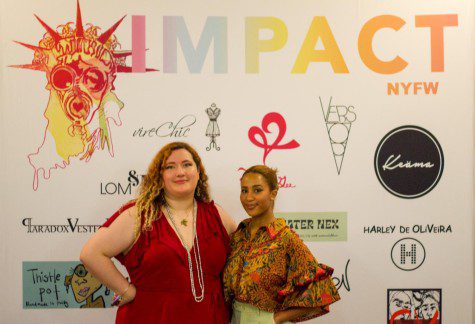
IMPACT’s virtual pop-up shop will open on Sept. 24 at 6 p.m. and last for two weeks for anyone interested in shopping the designs.
“I think part of the reason the shift towards sustainability is taking such a slower time is the entire lack of transparency,” Gee said. “So [IMPACT] is a way to hopefully bridge the gap.”
Contact Roshni Raj at [email protected].
























































































































































